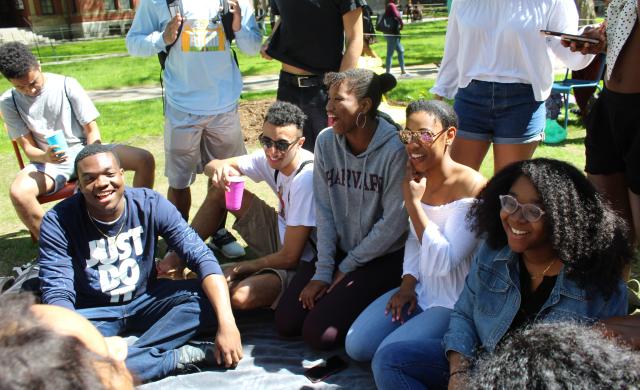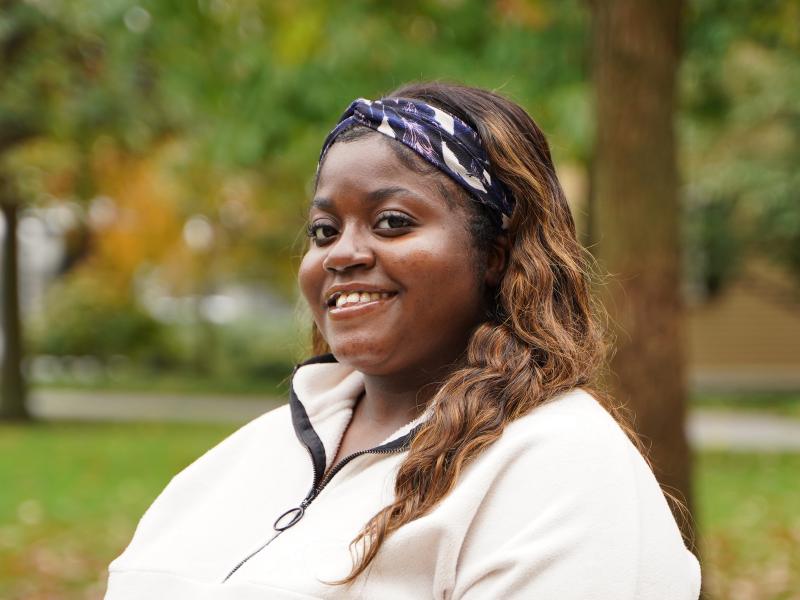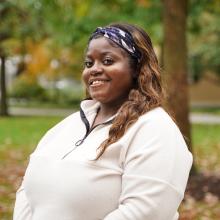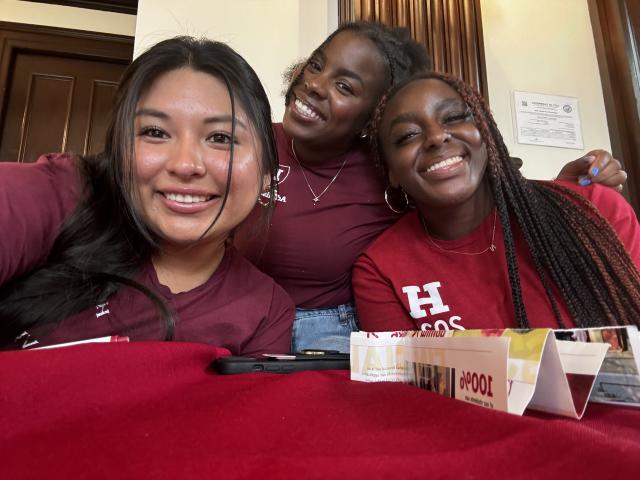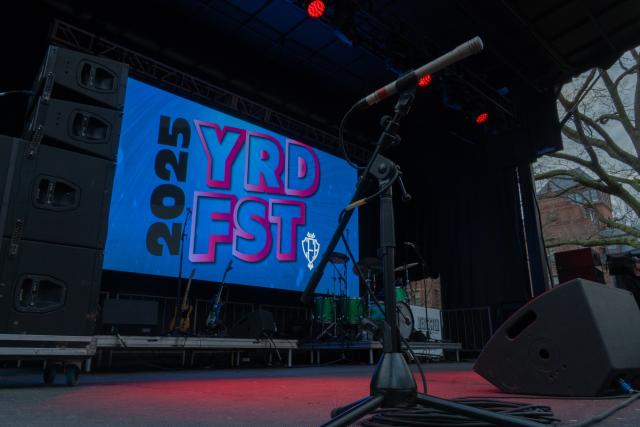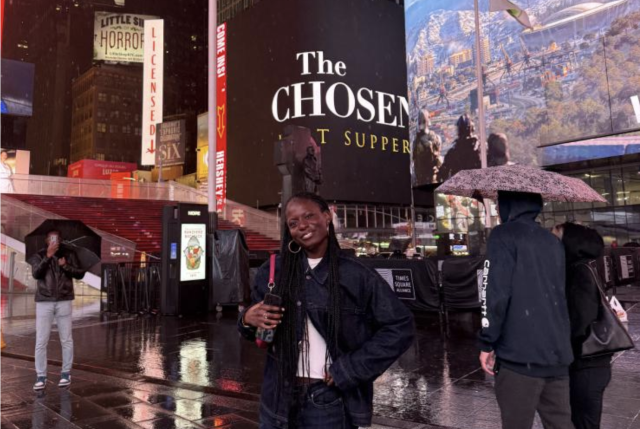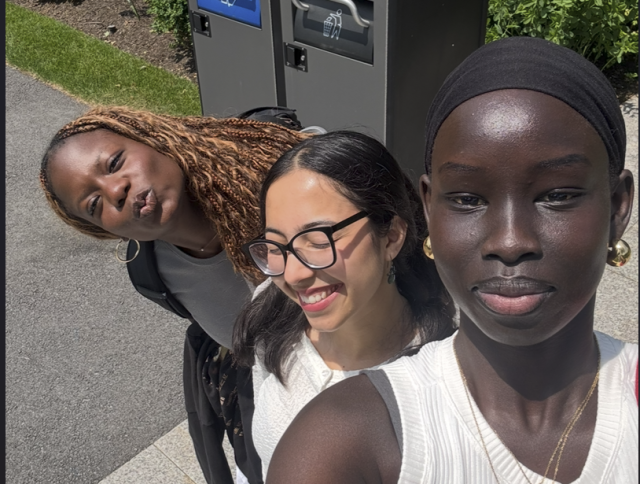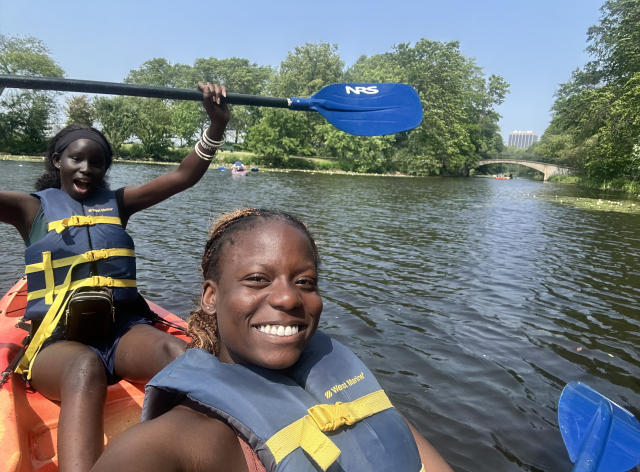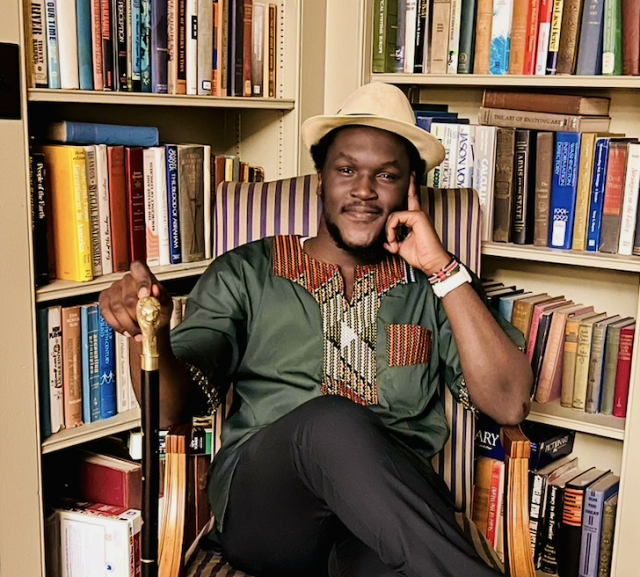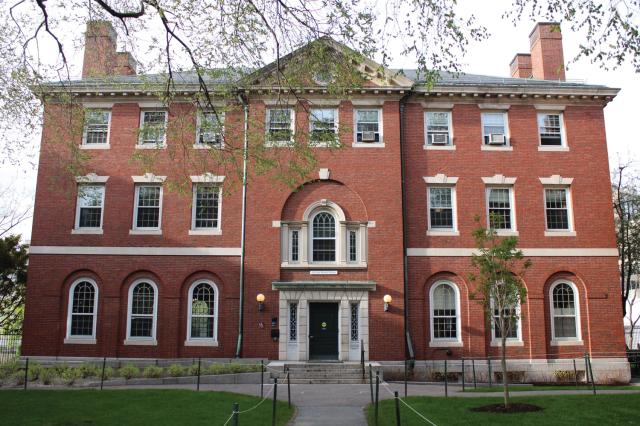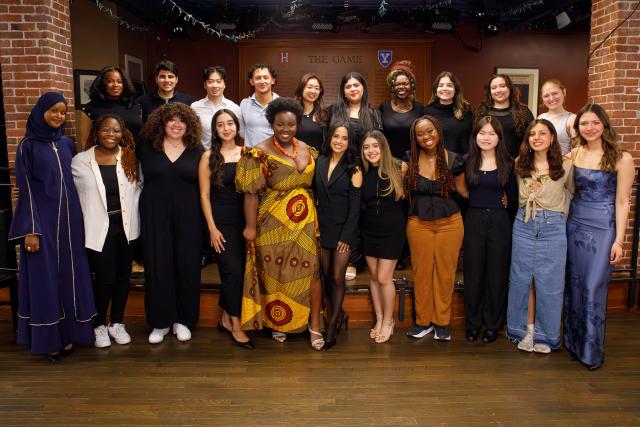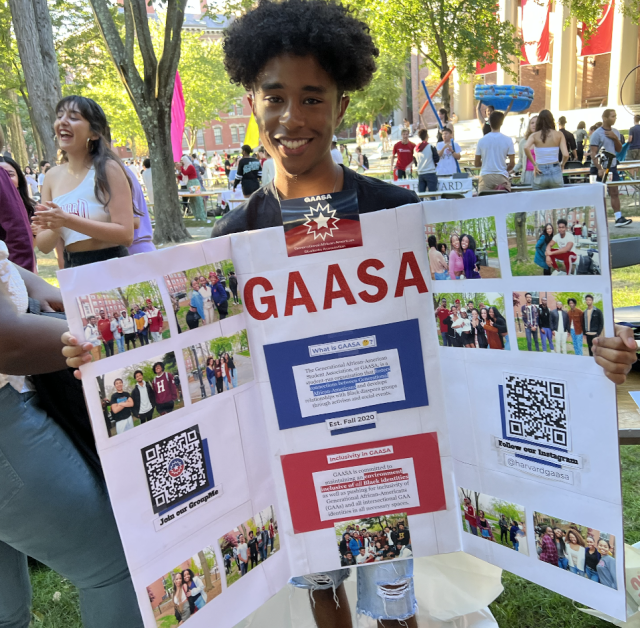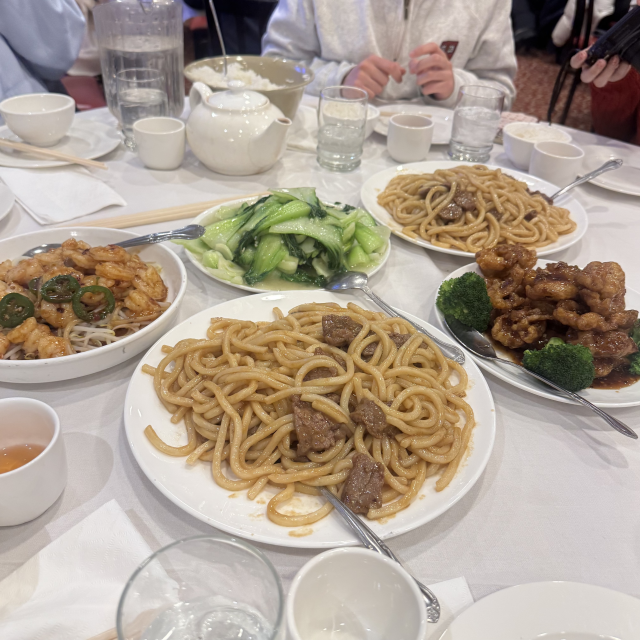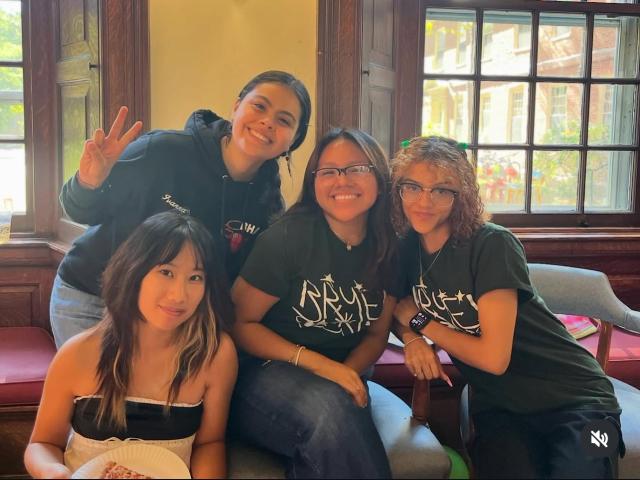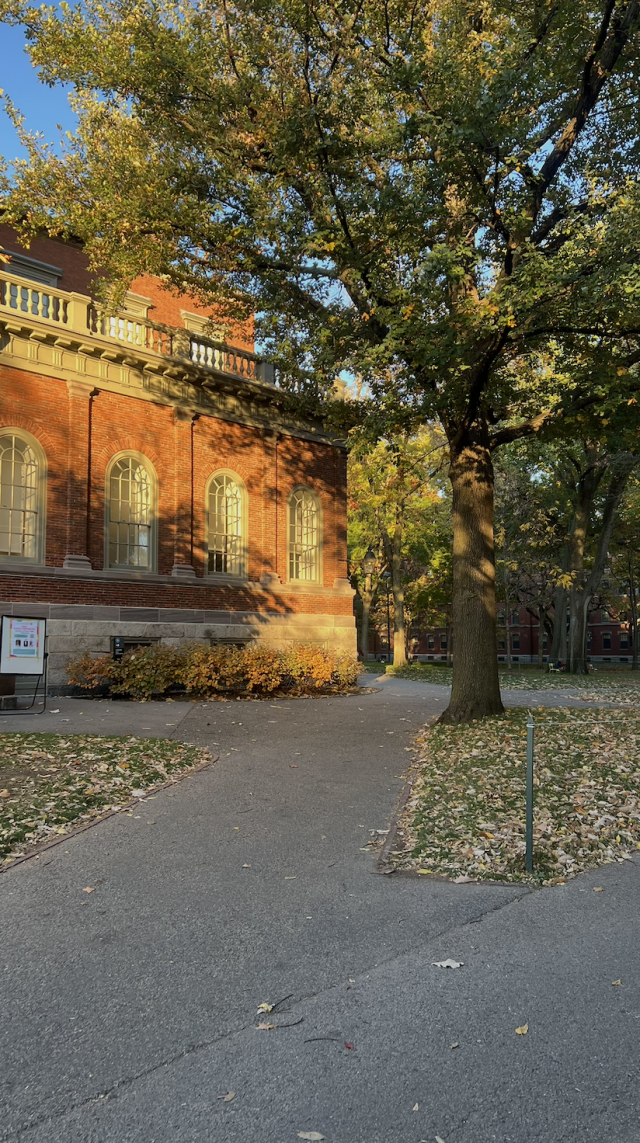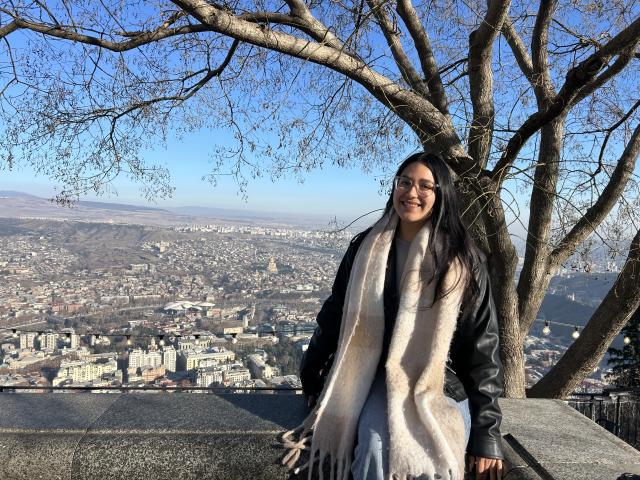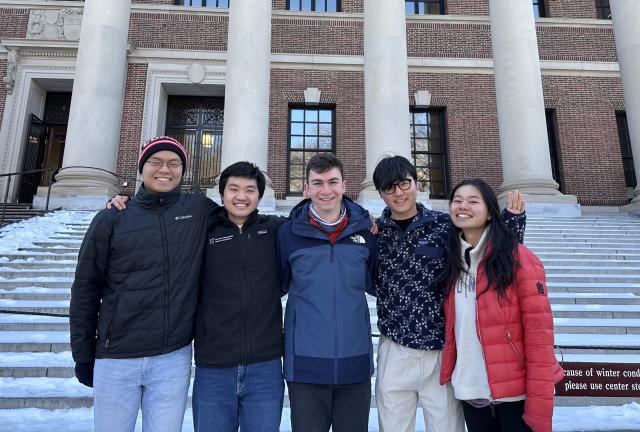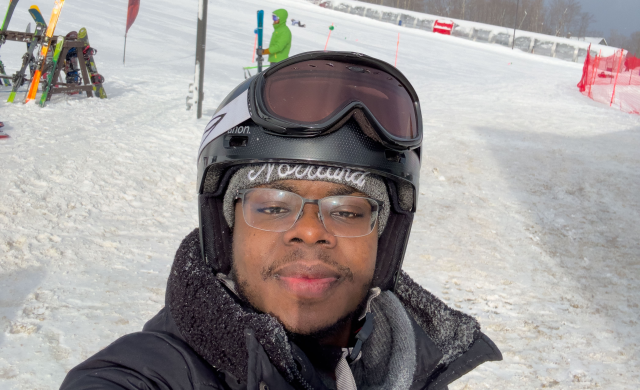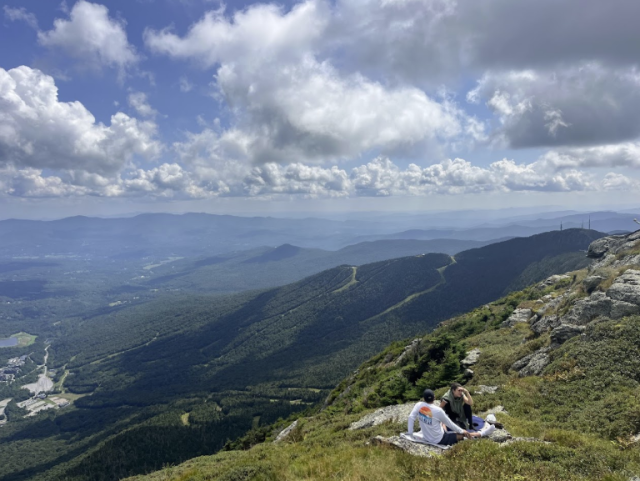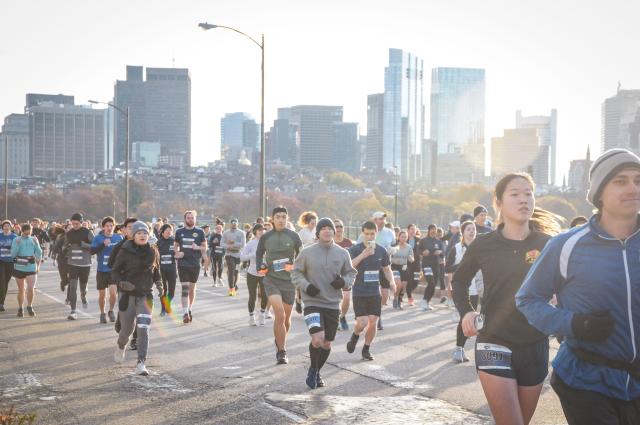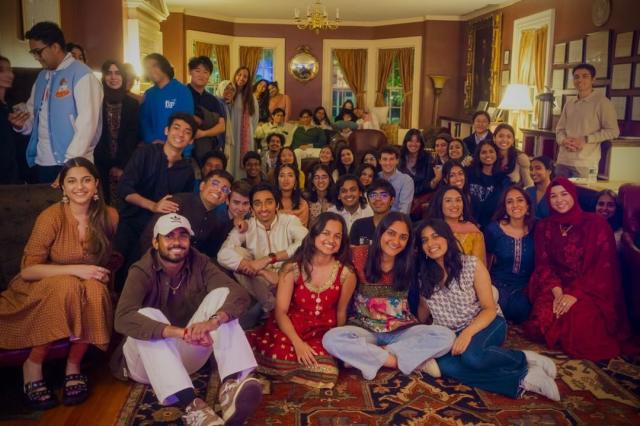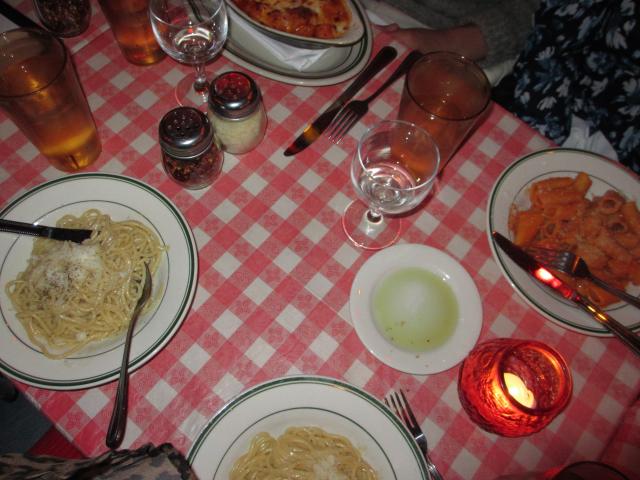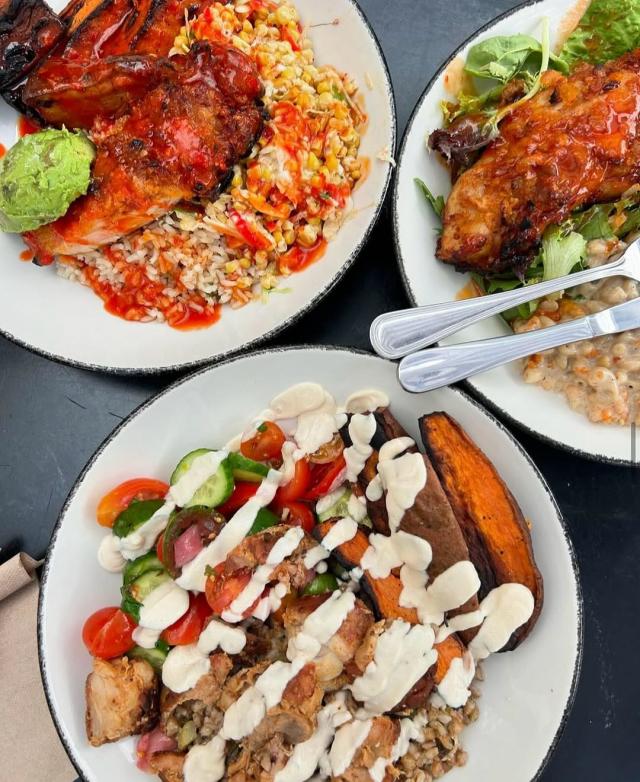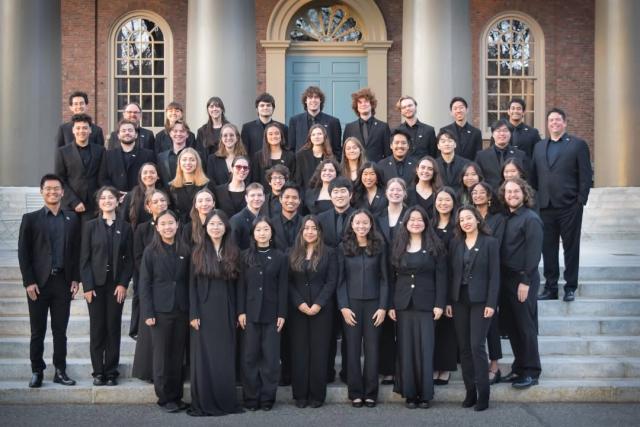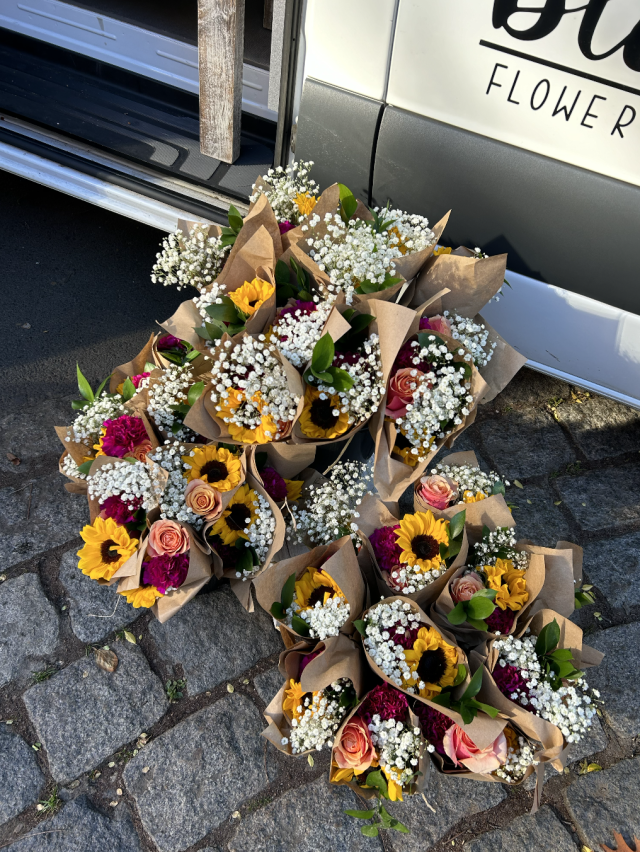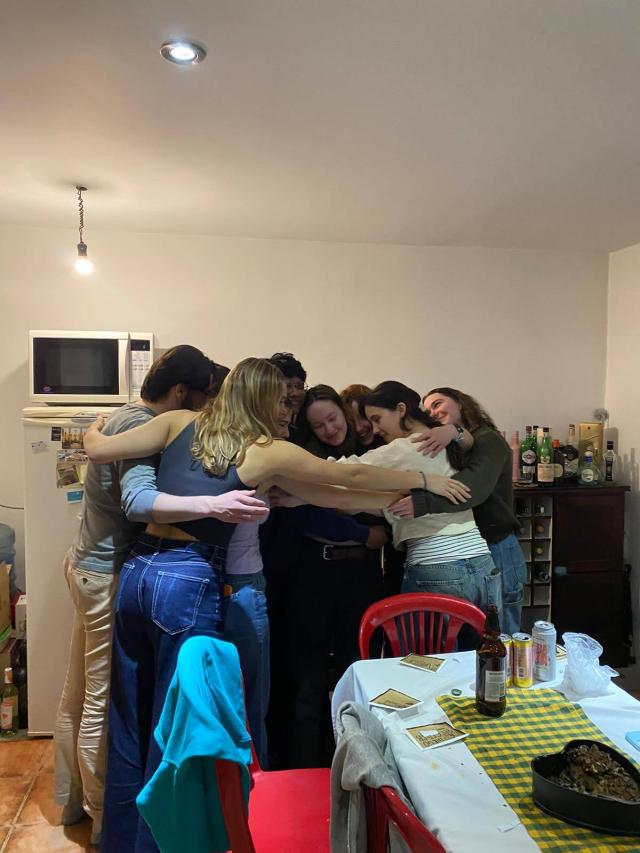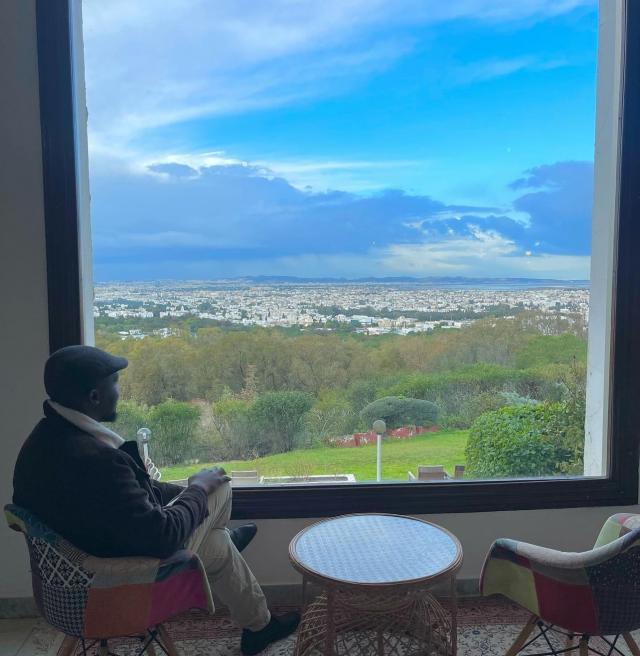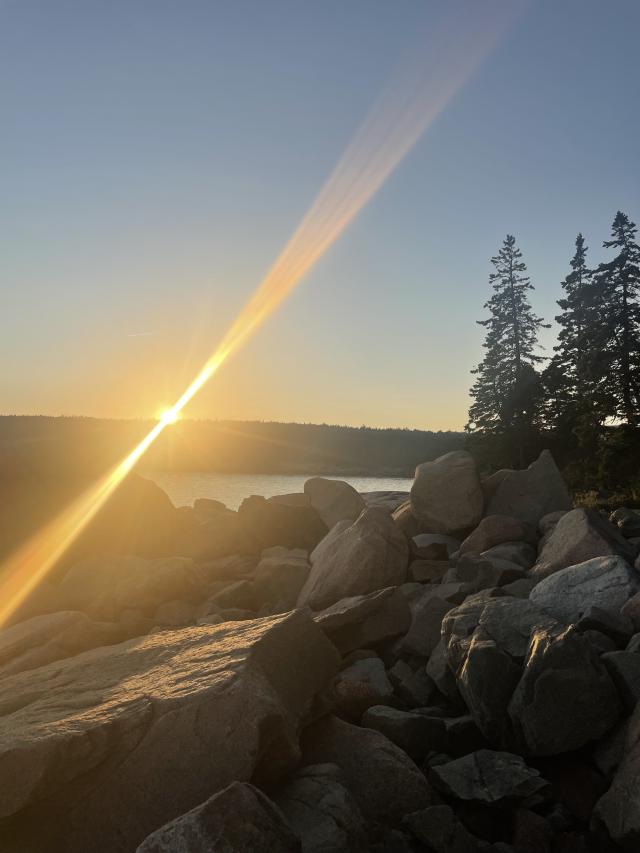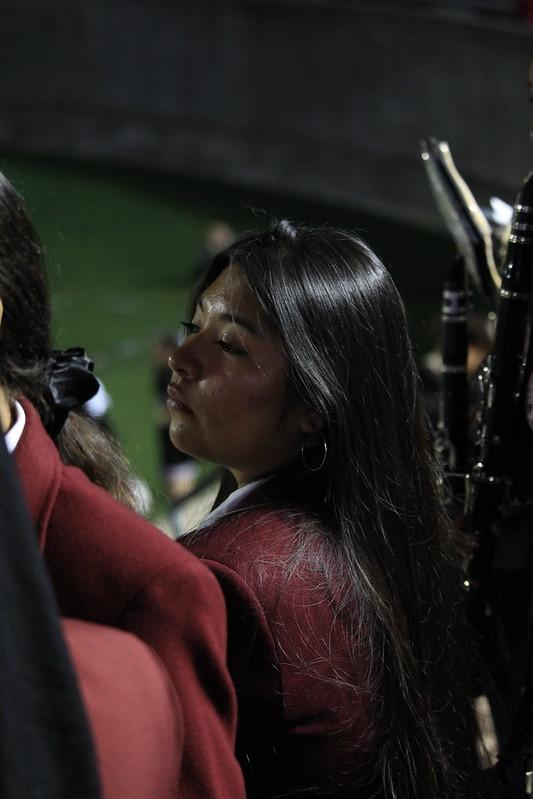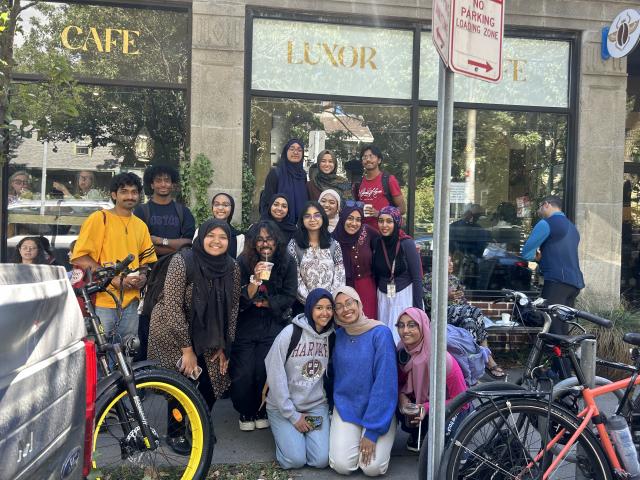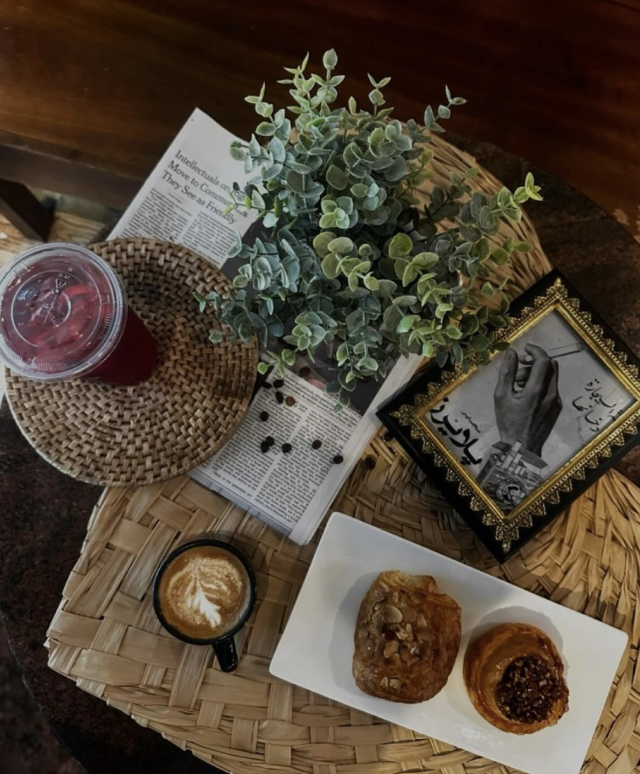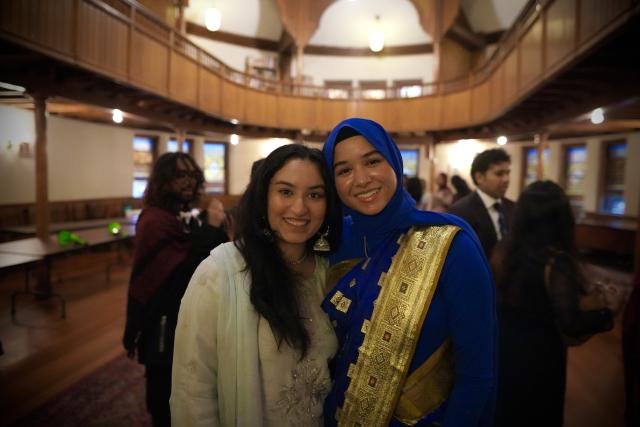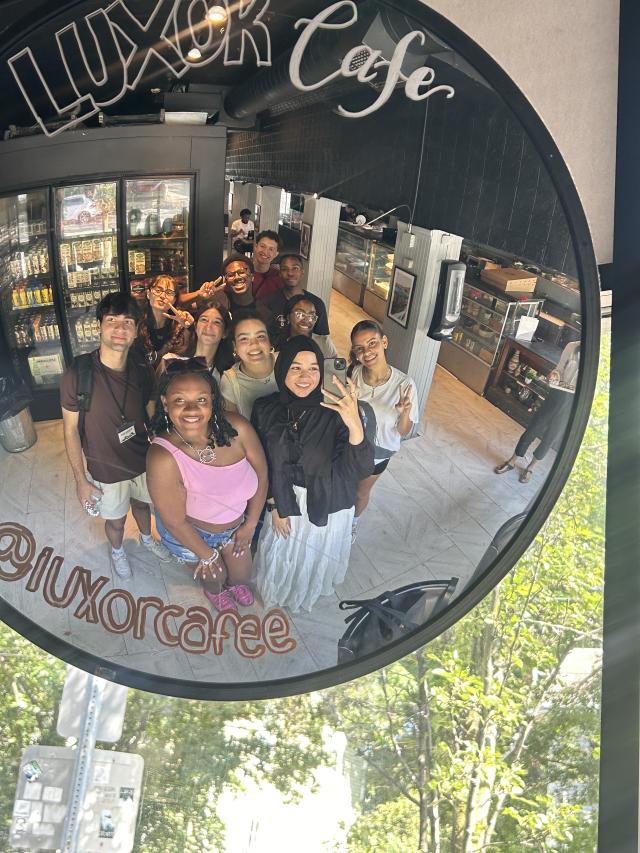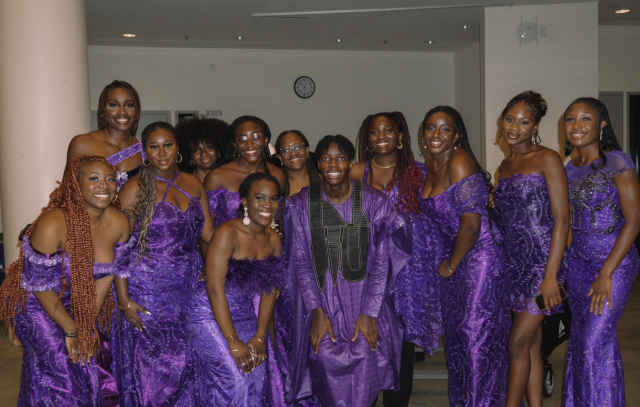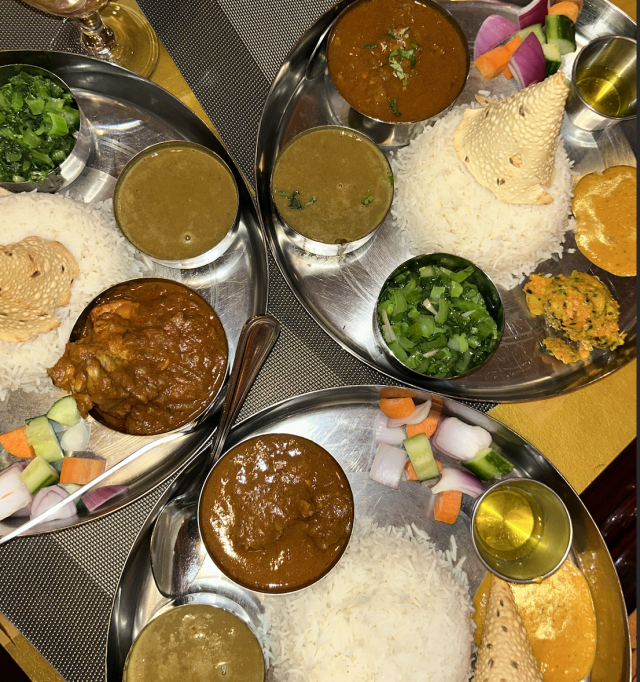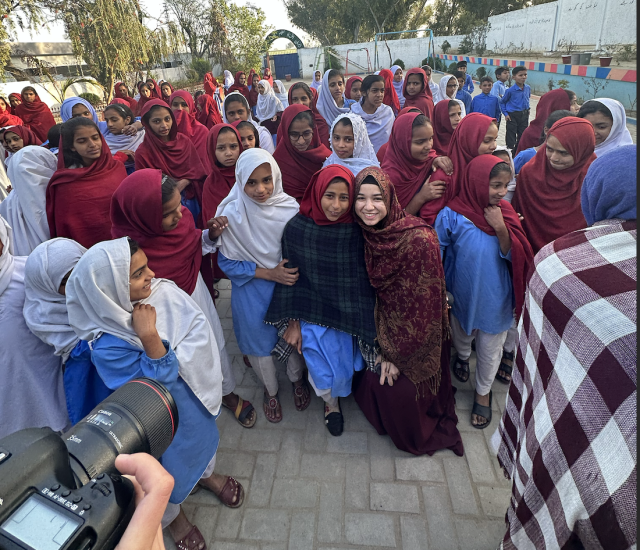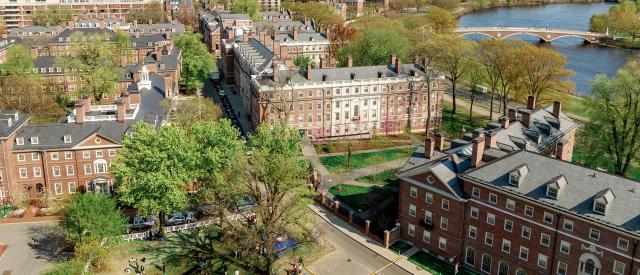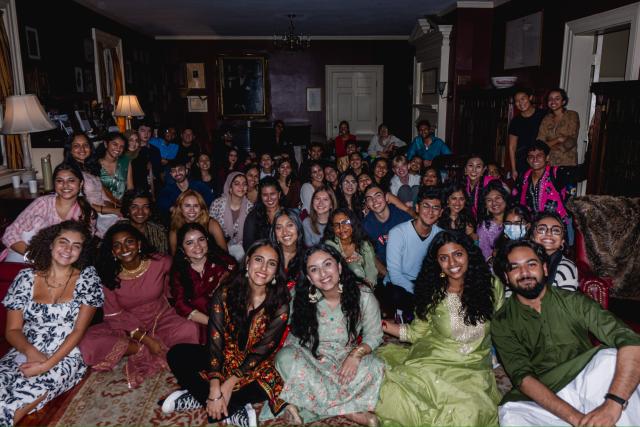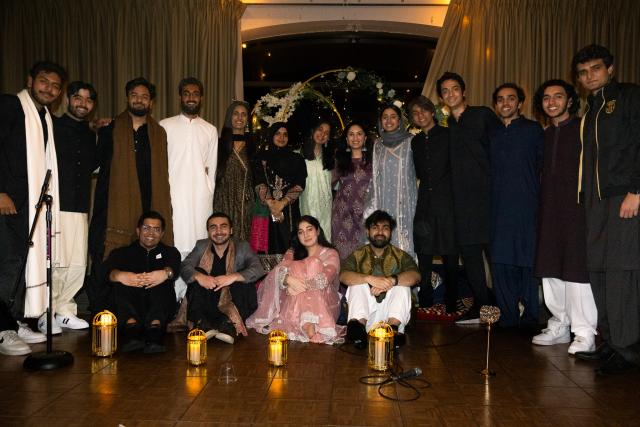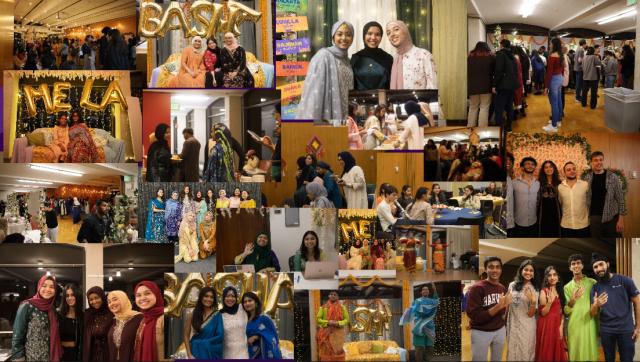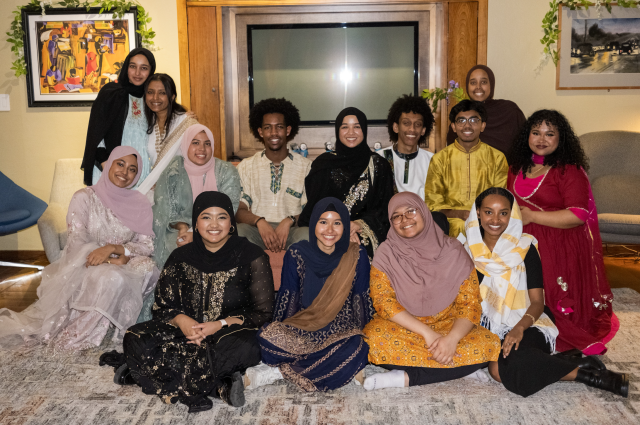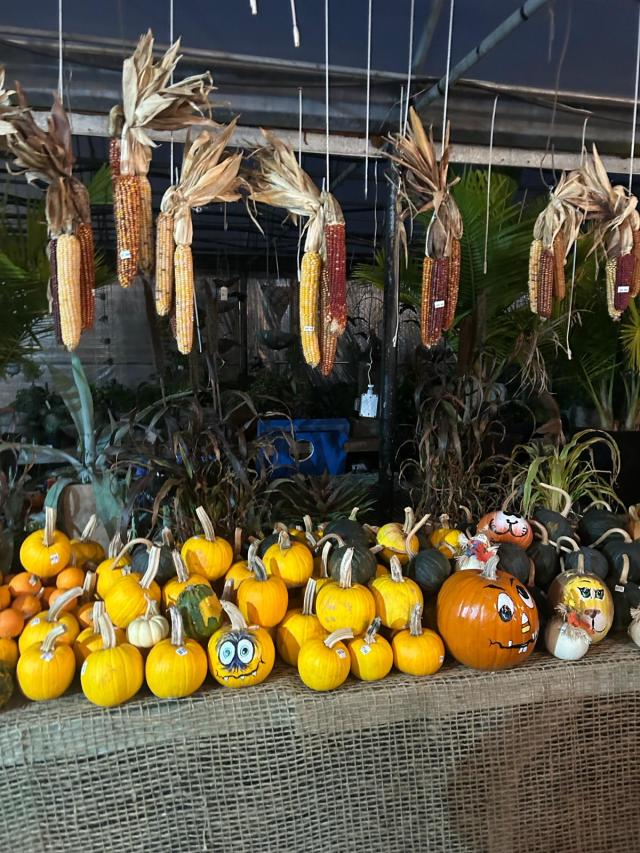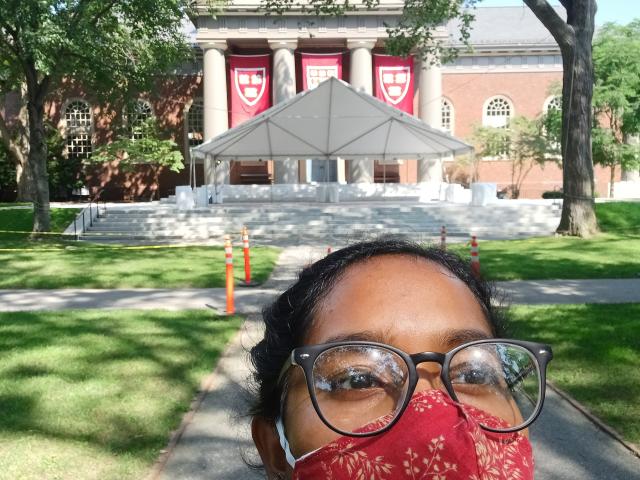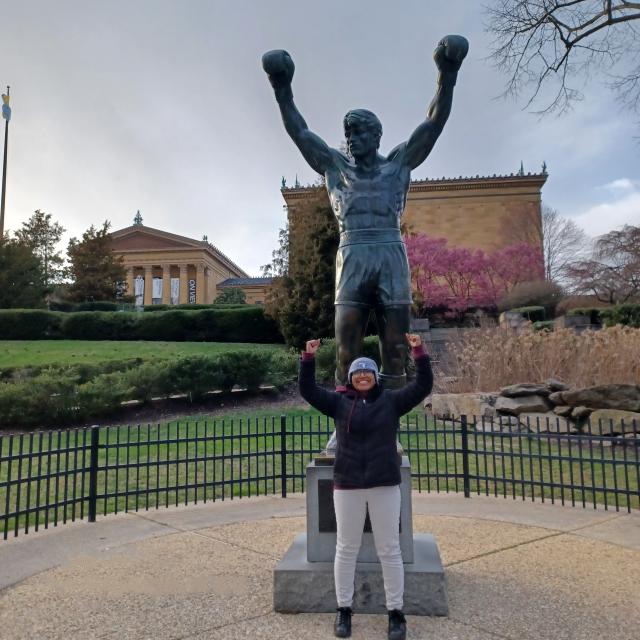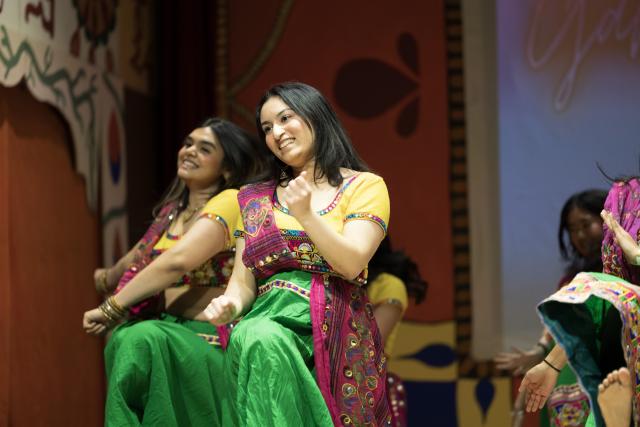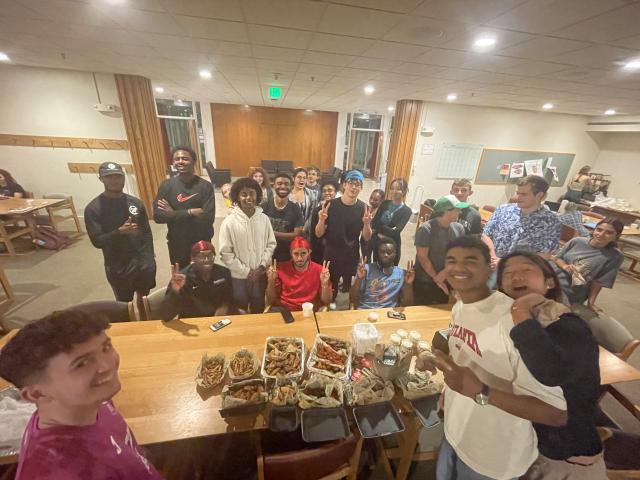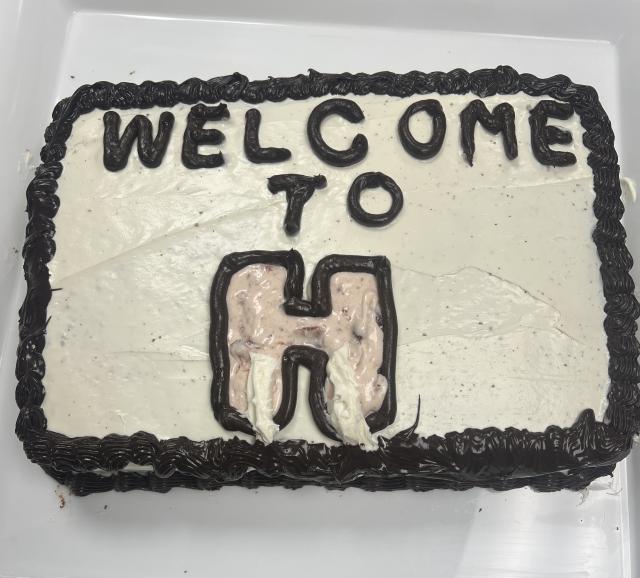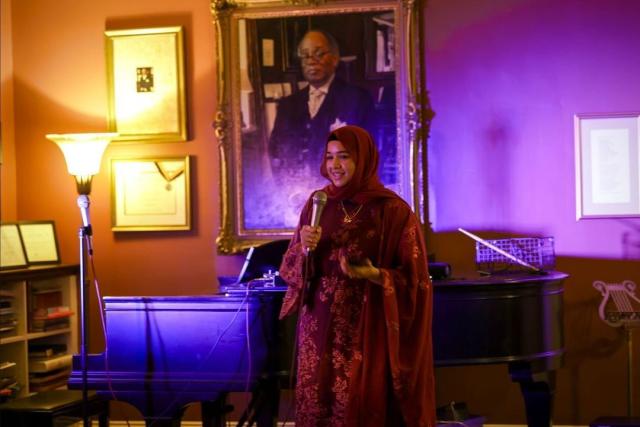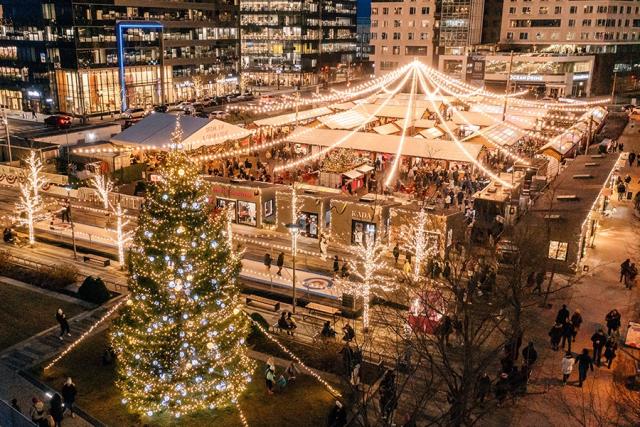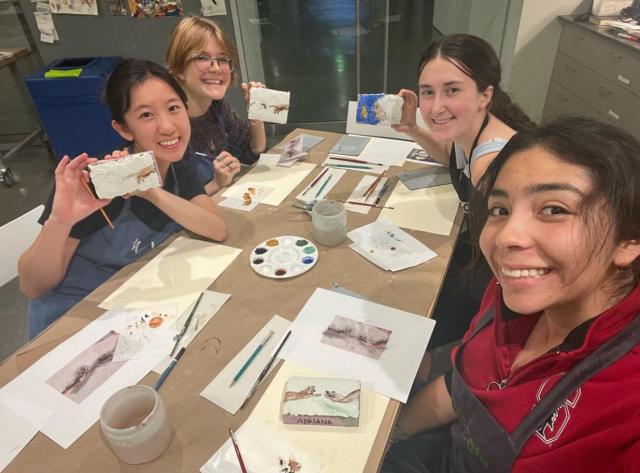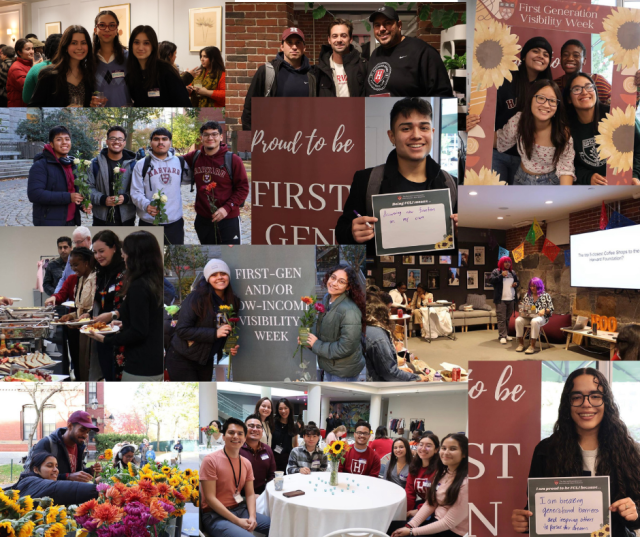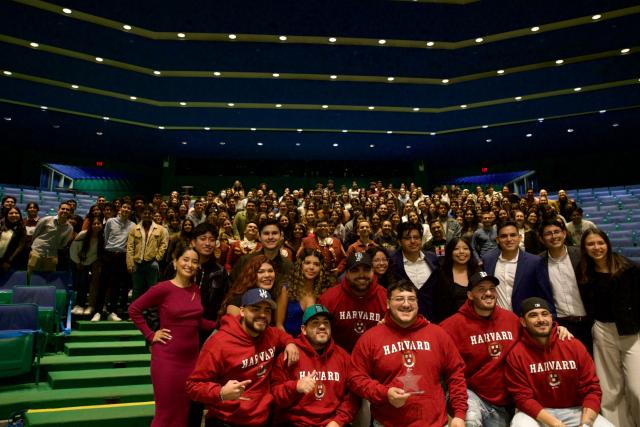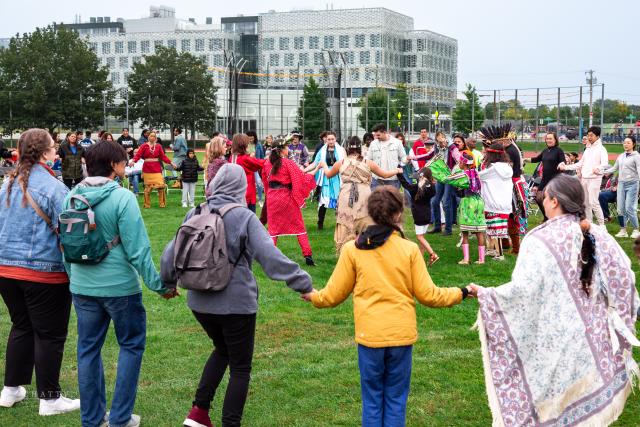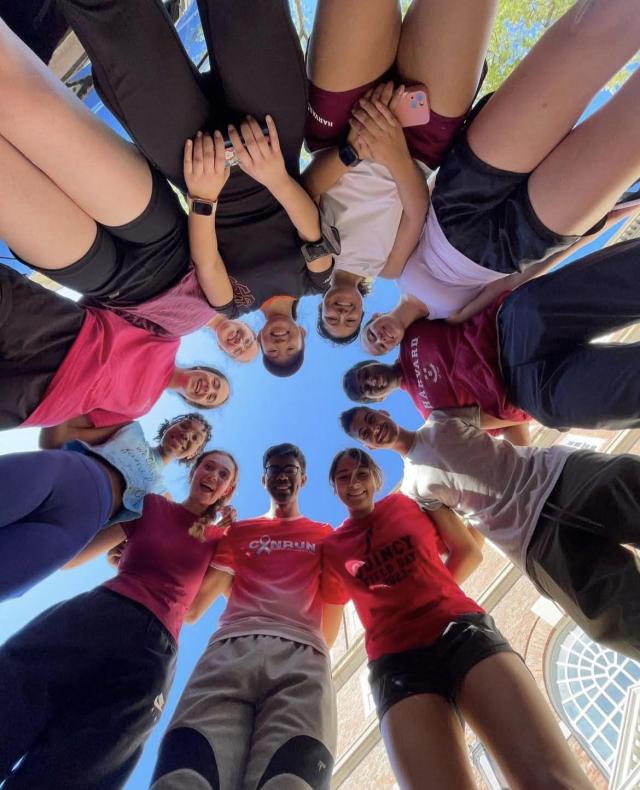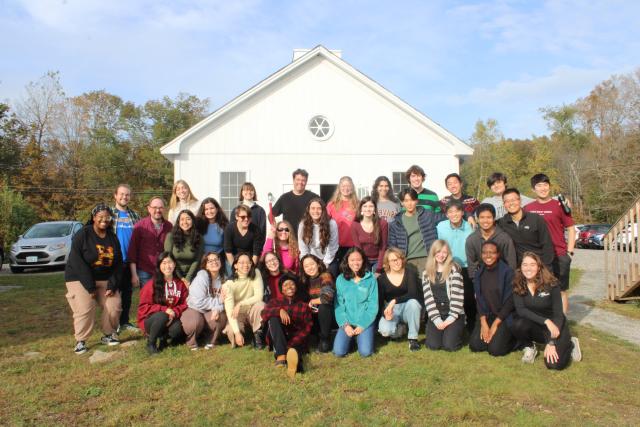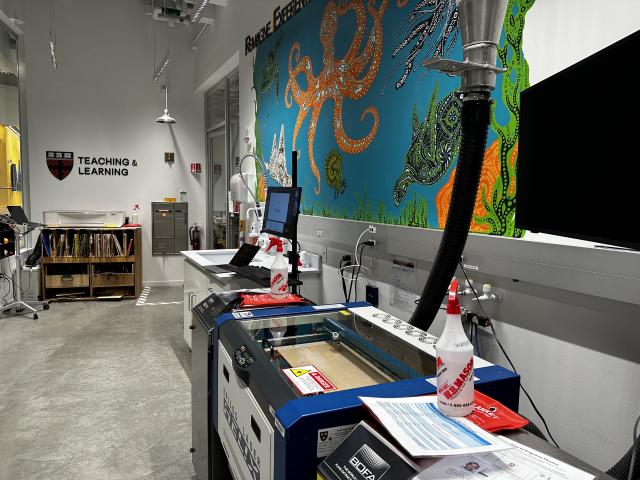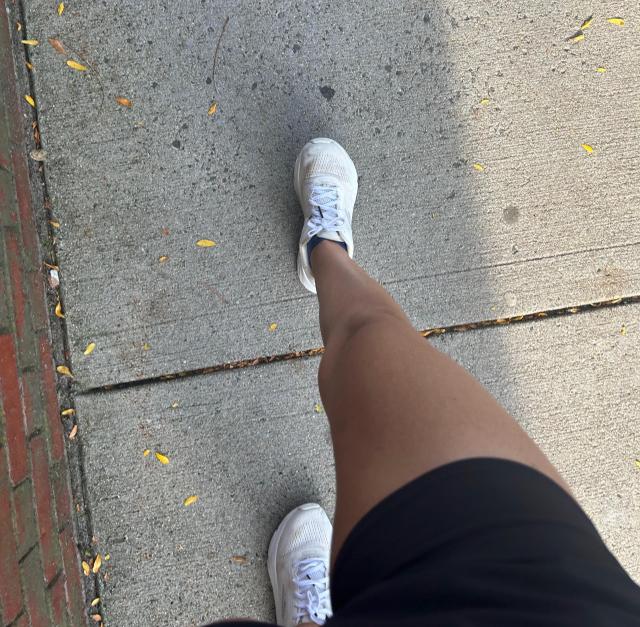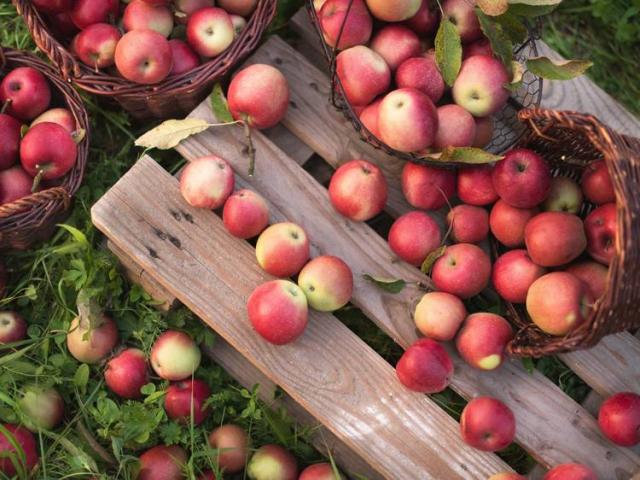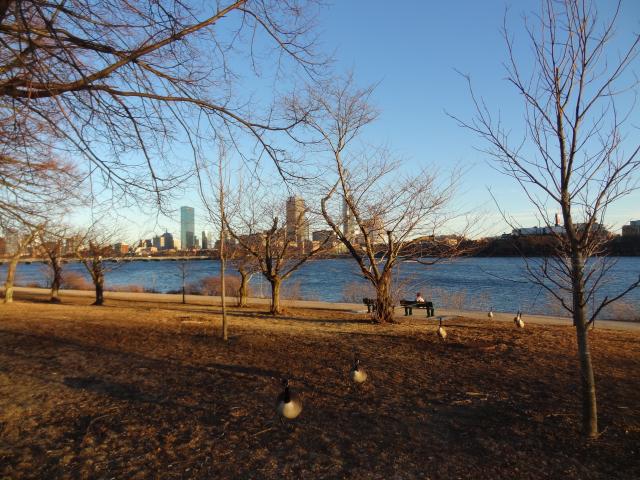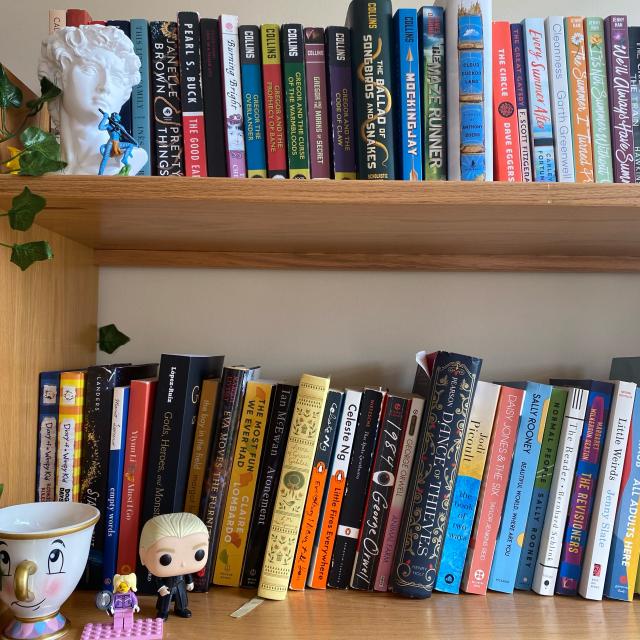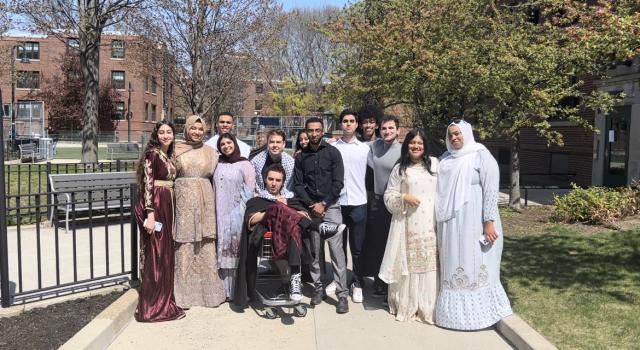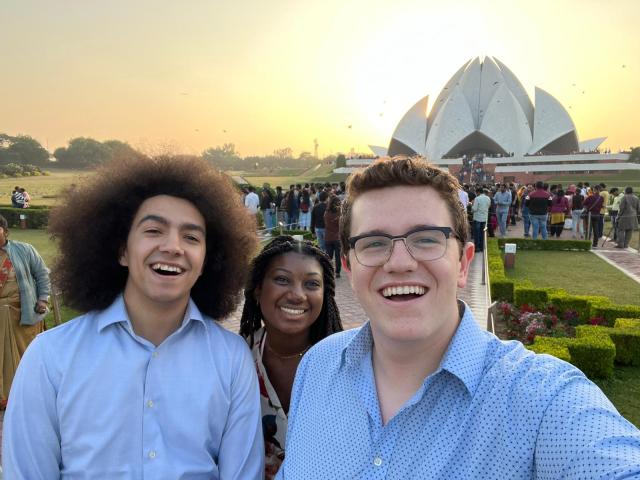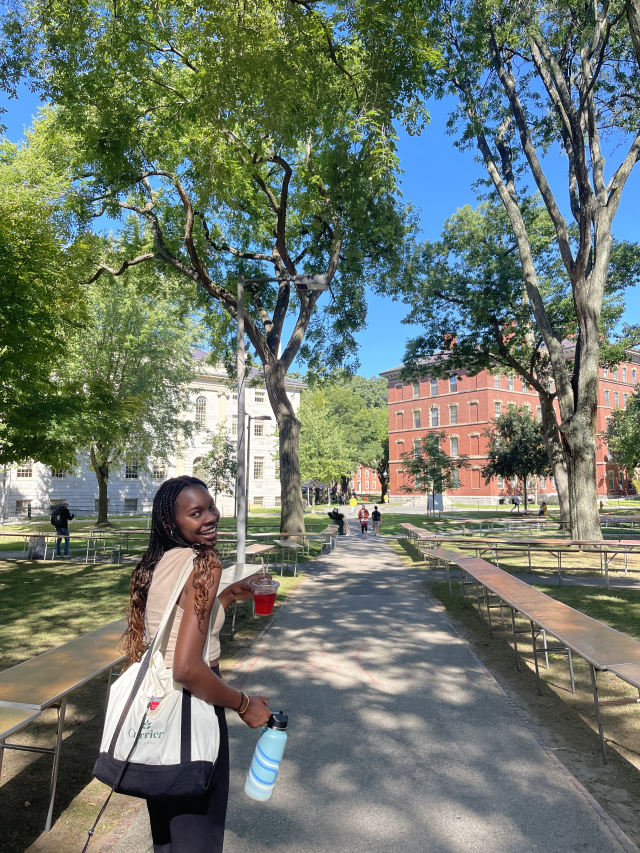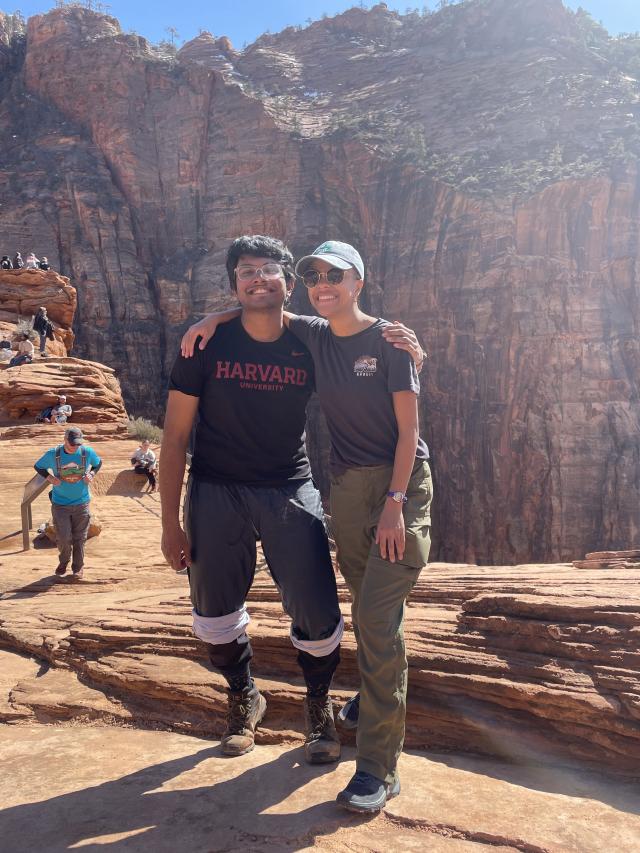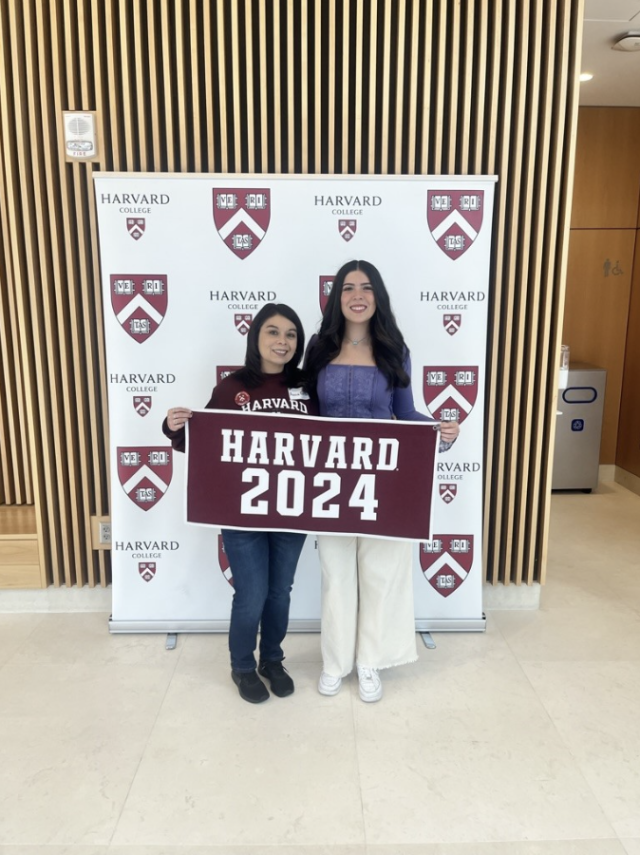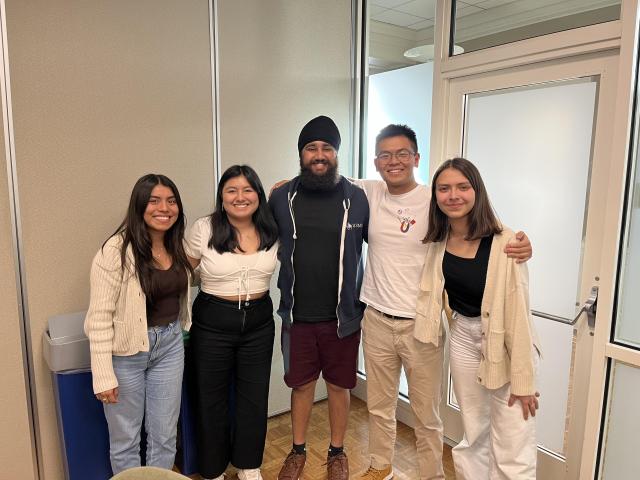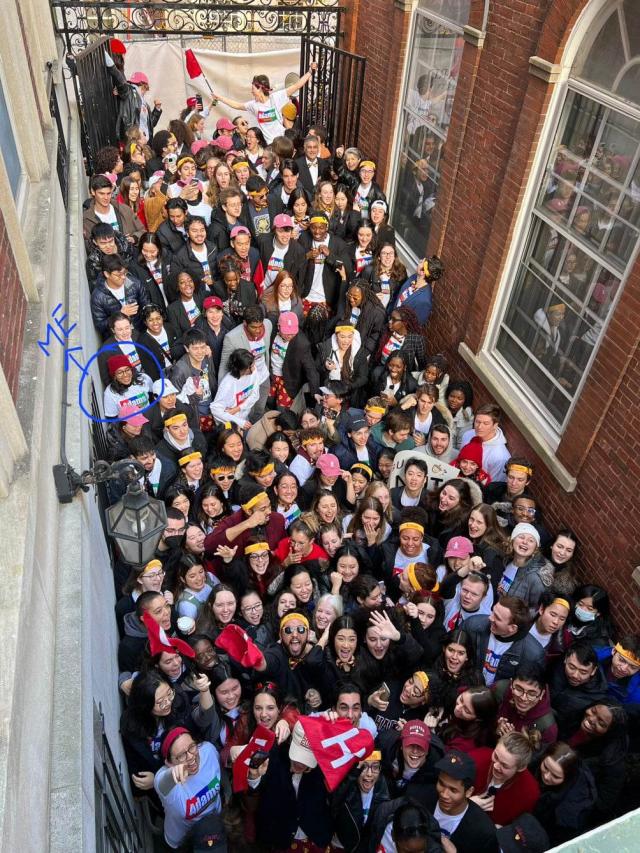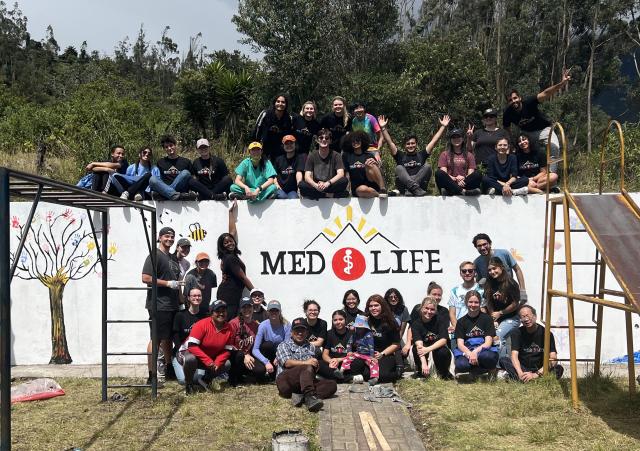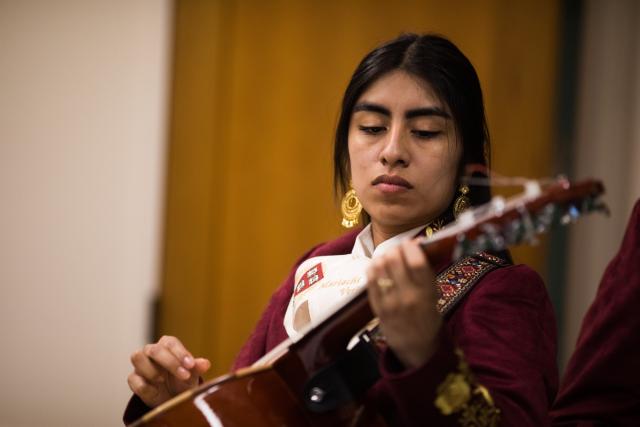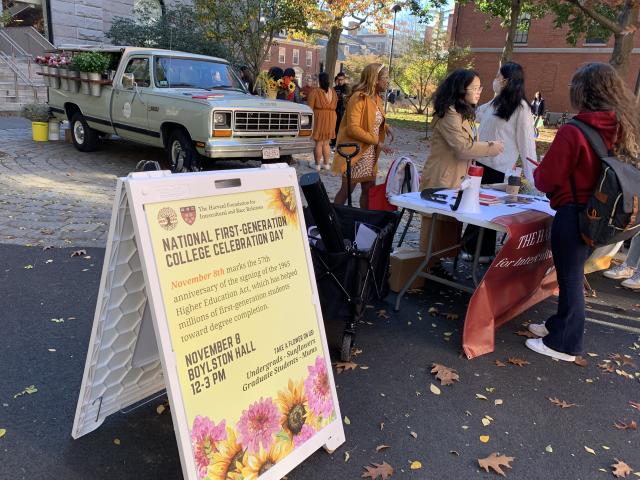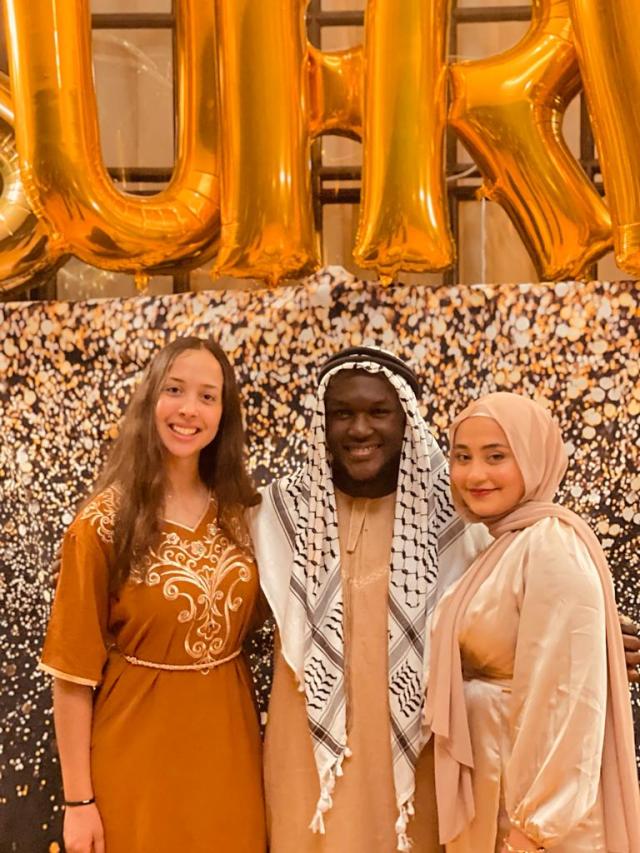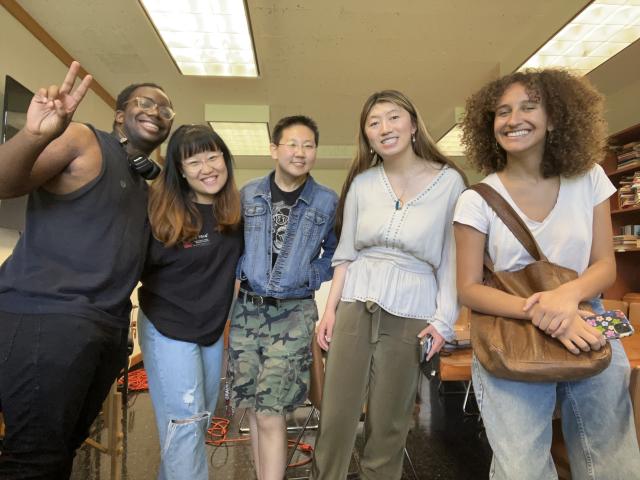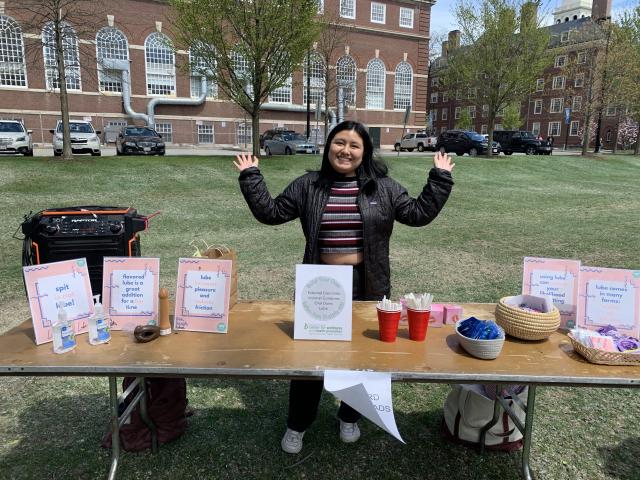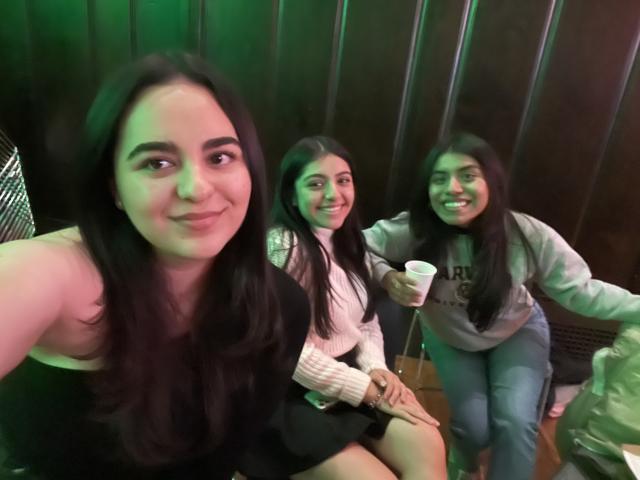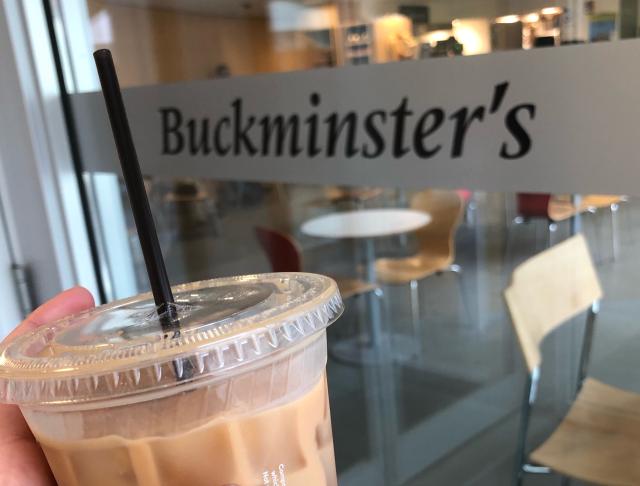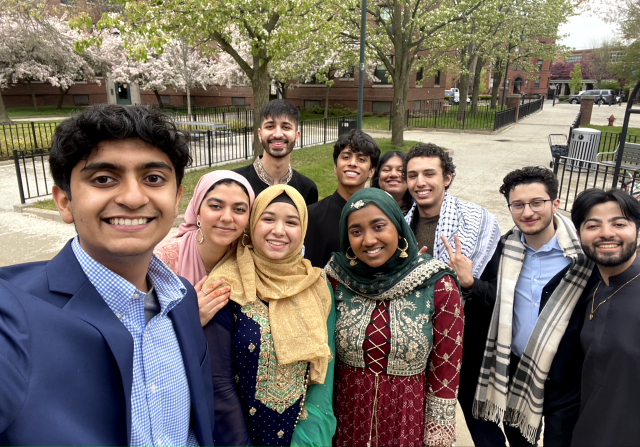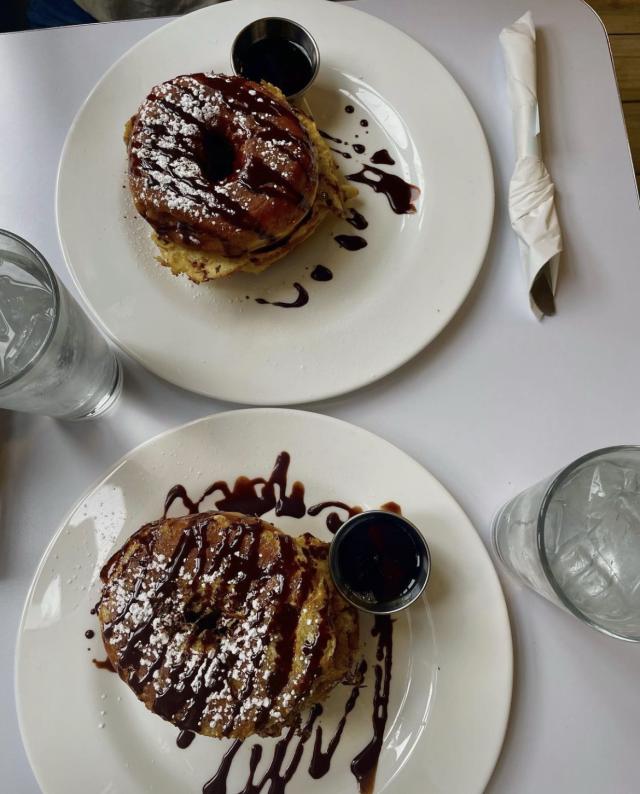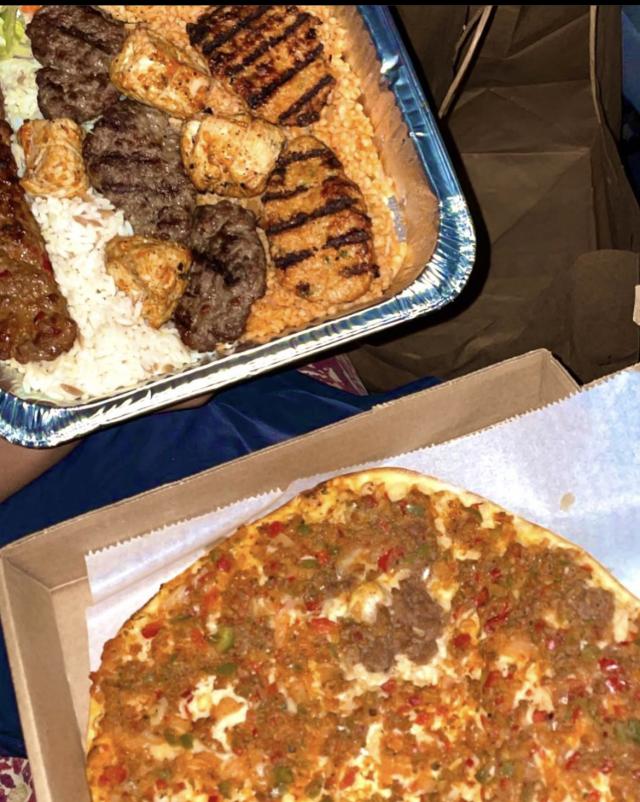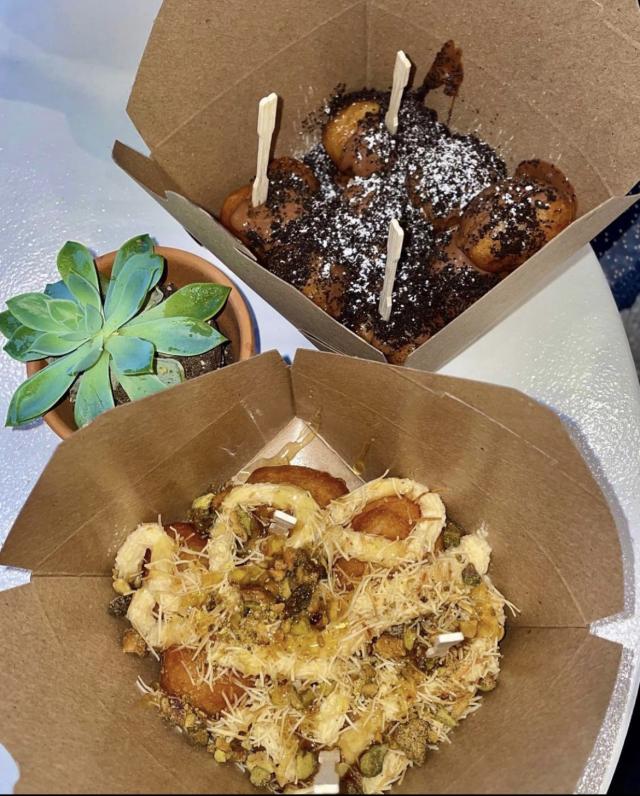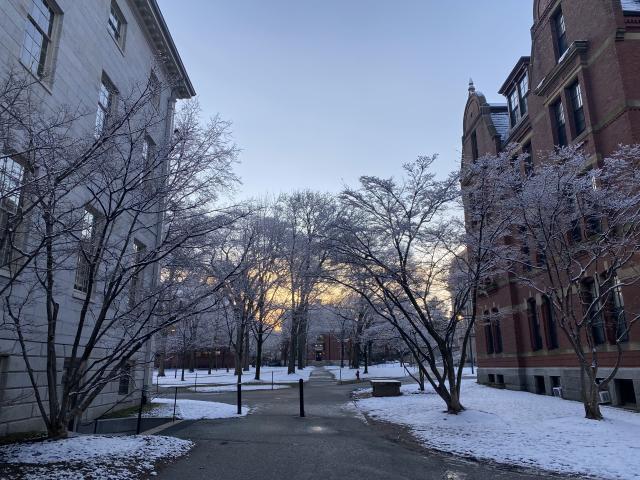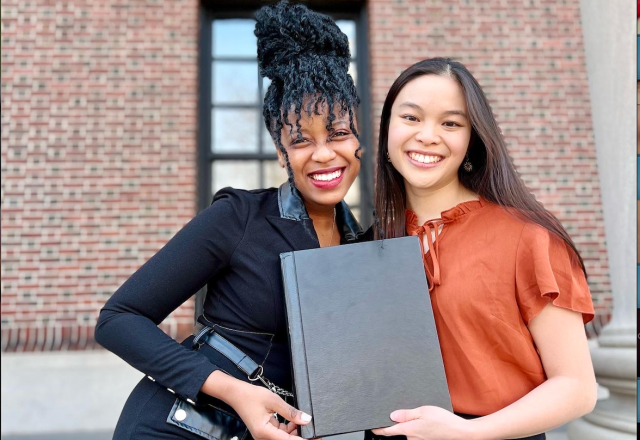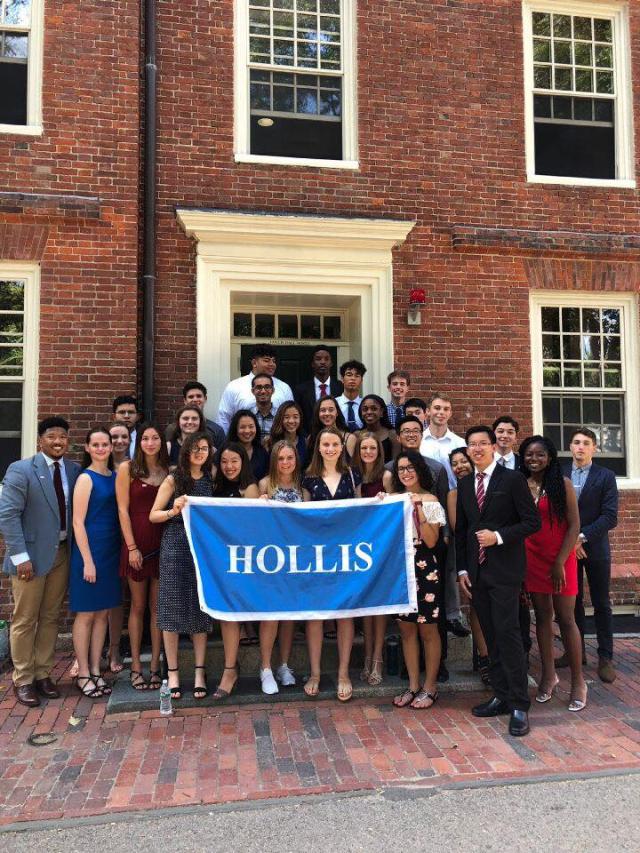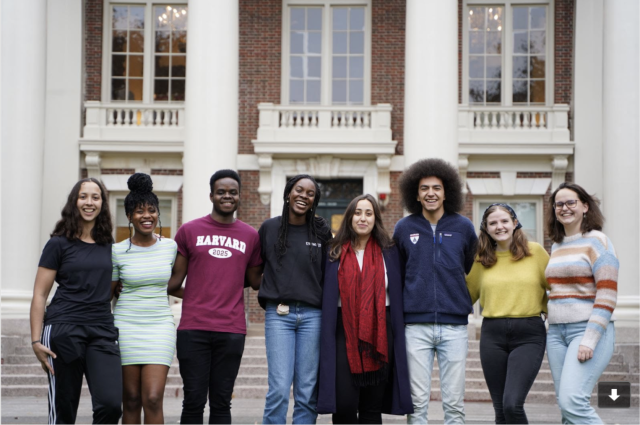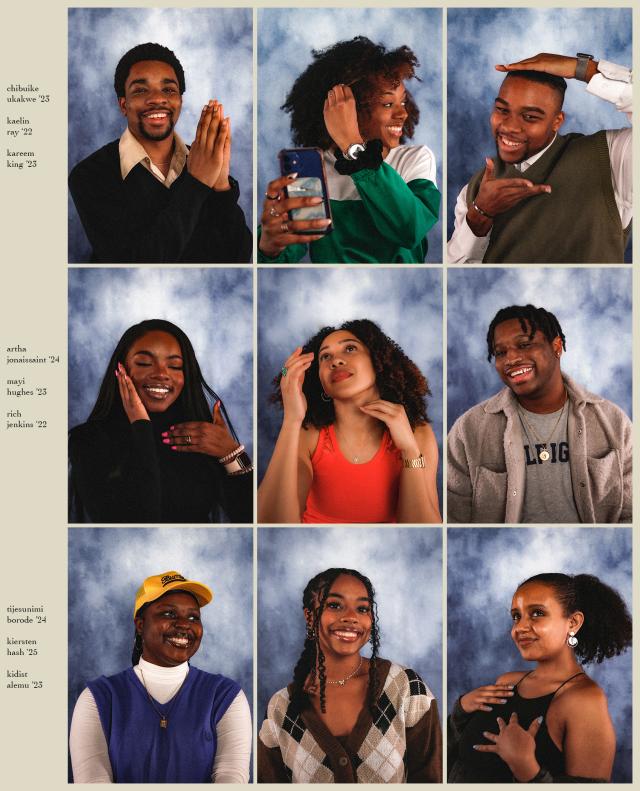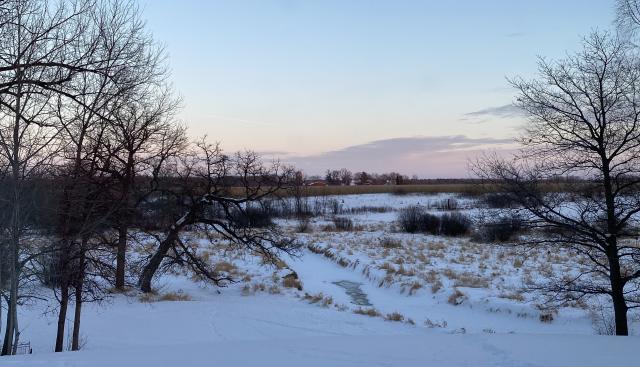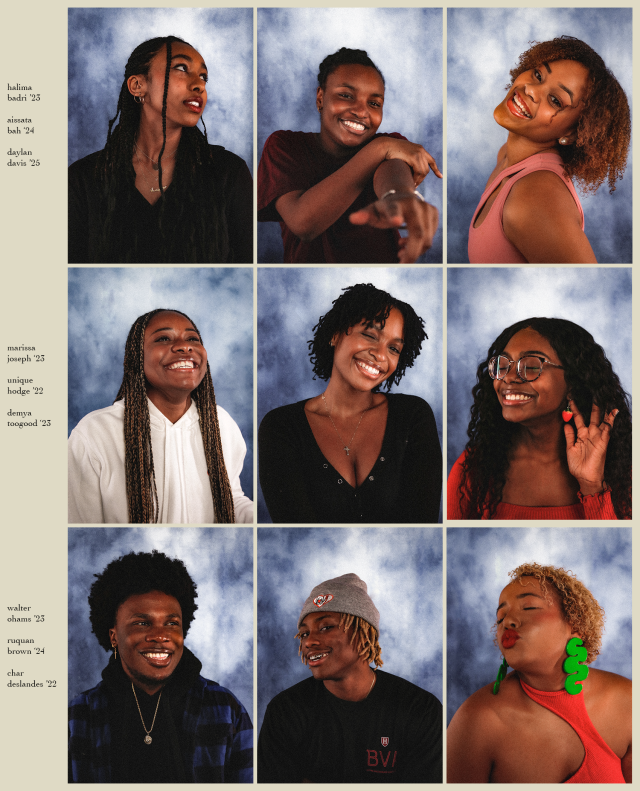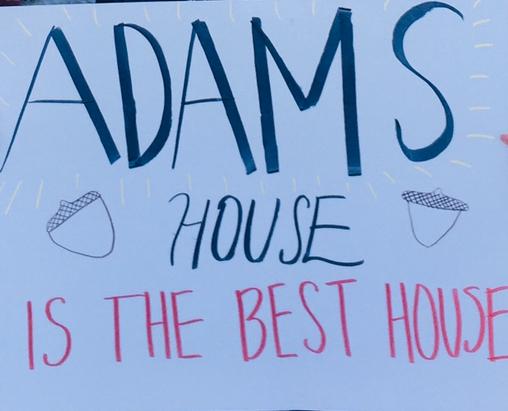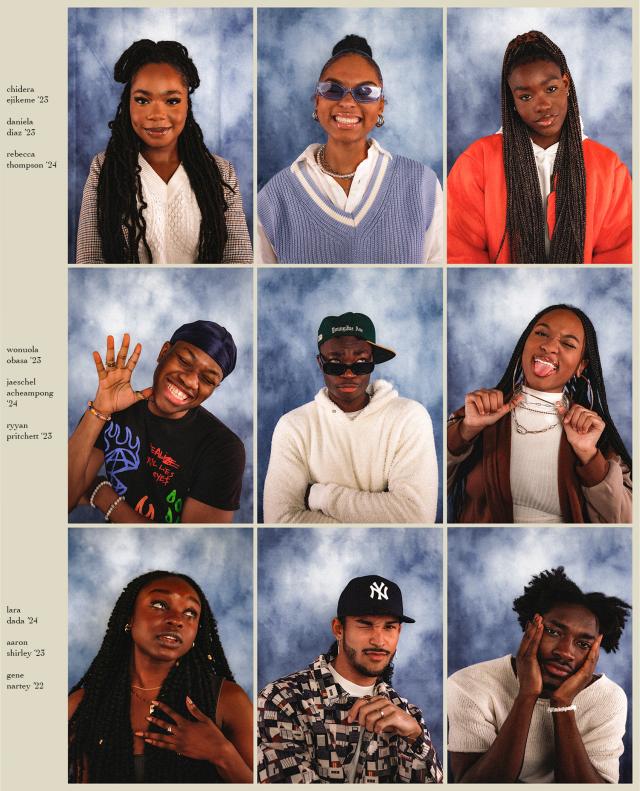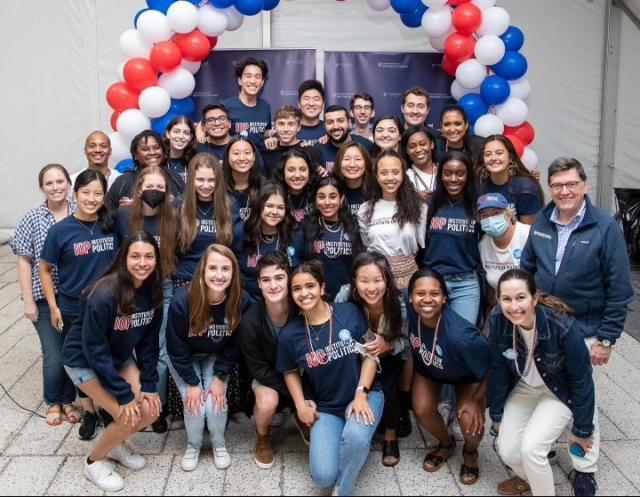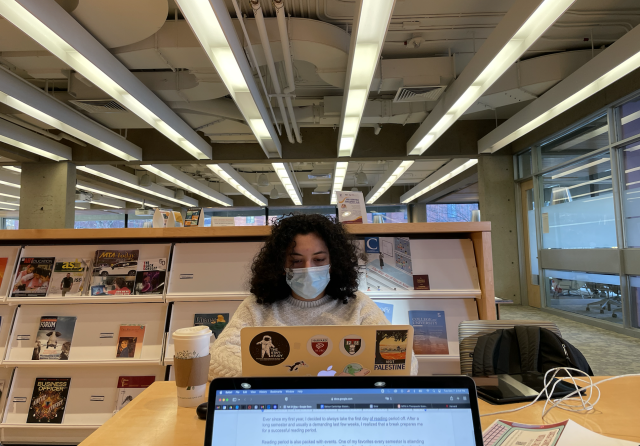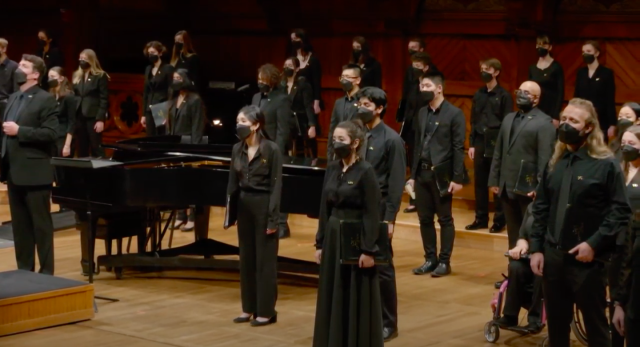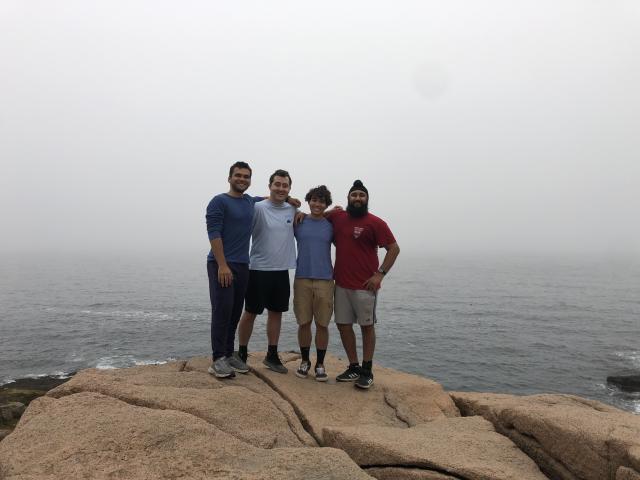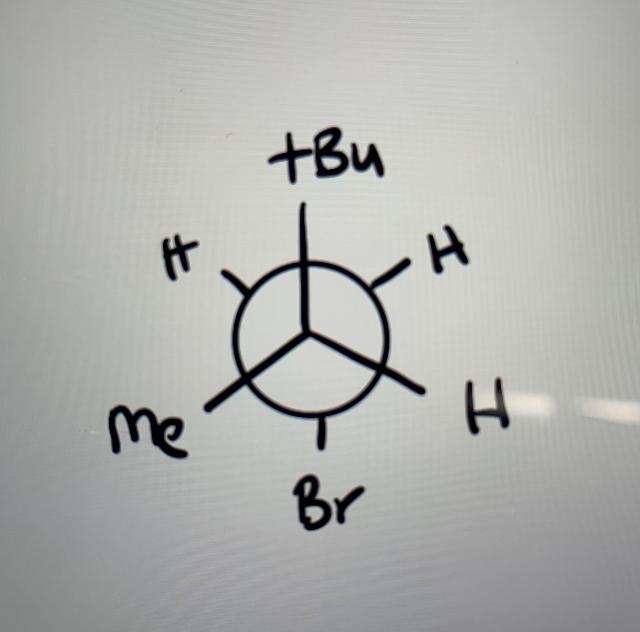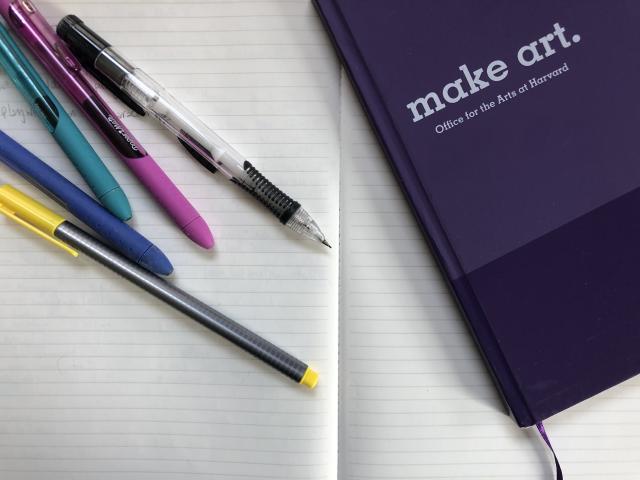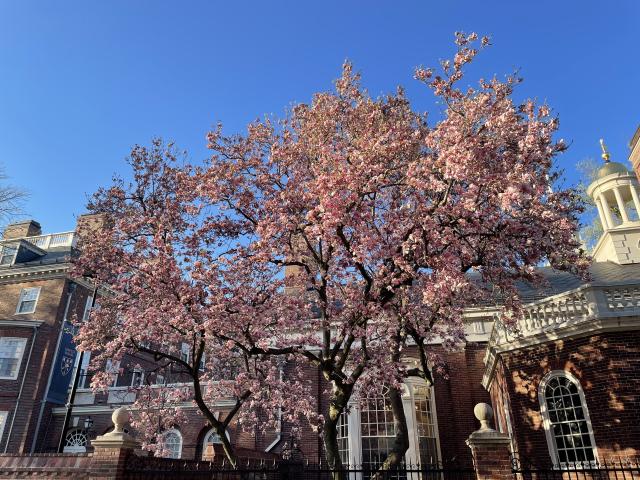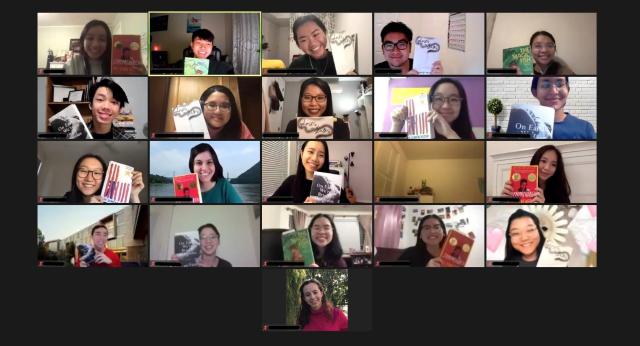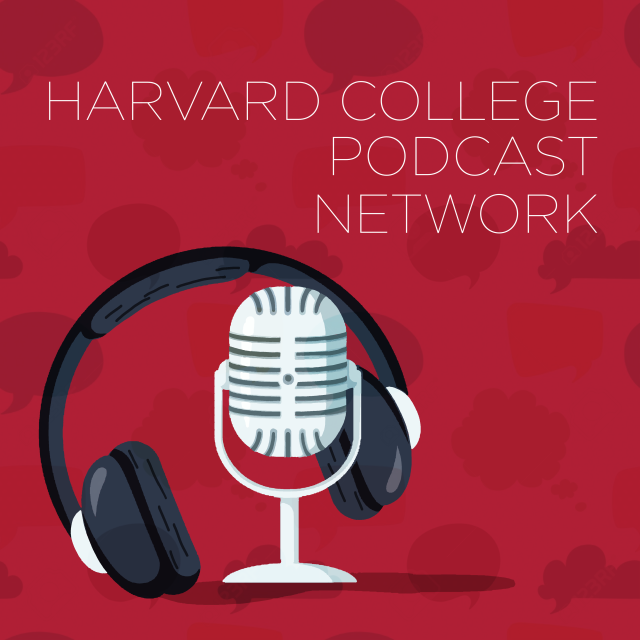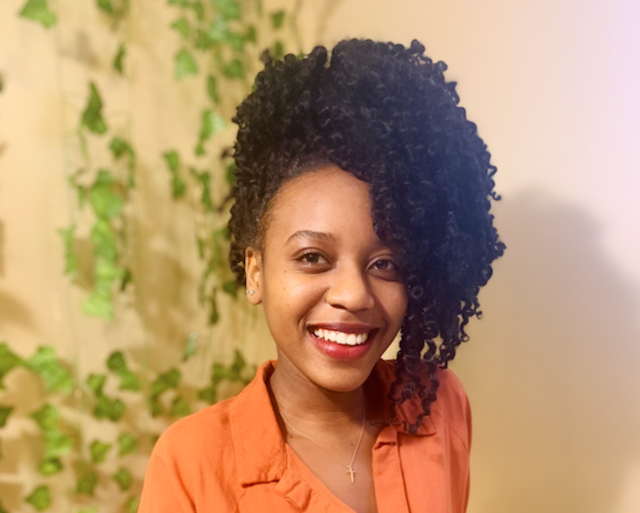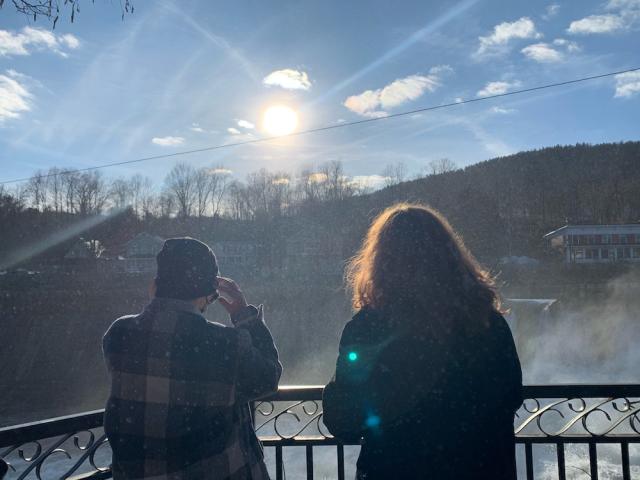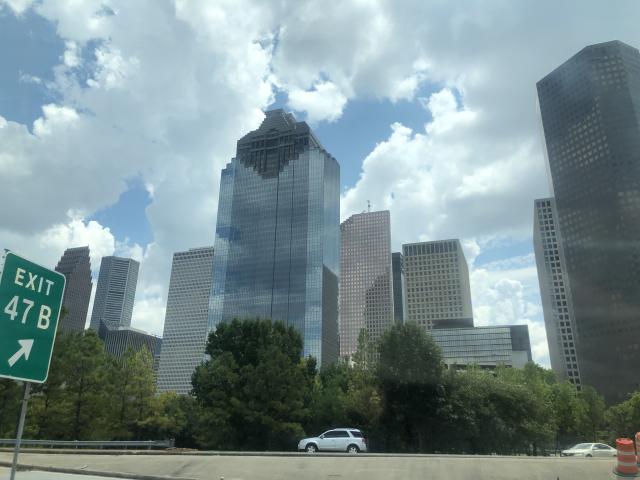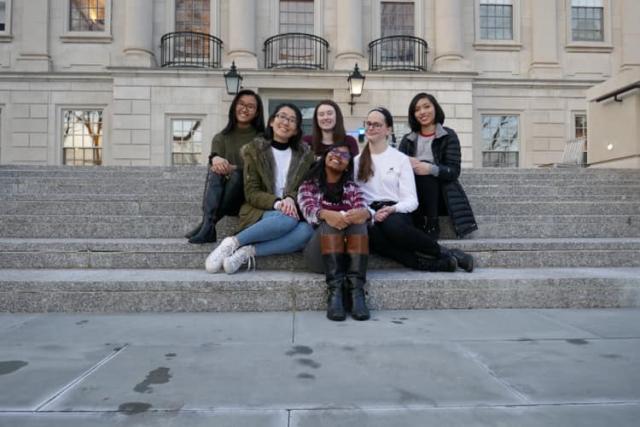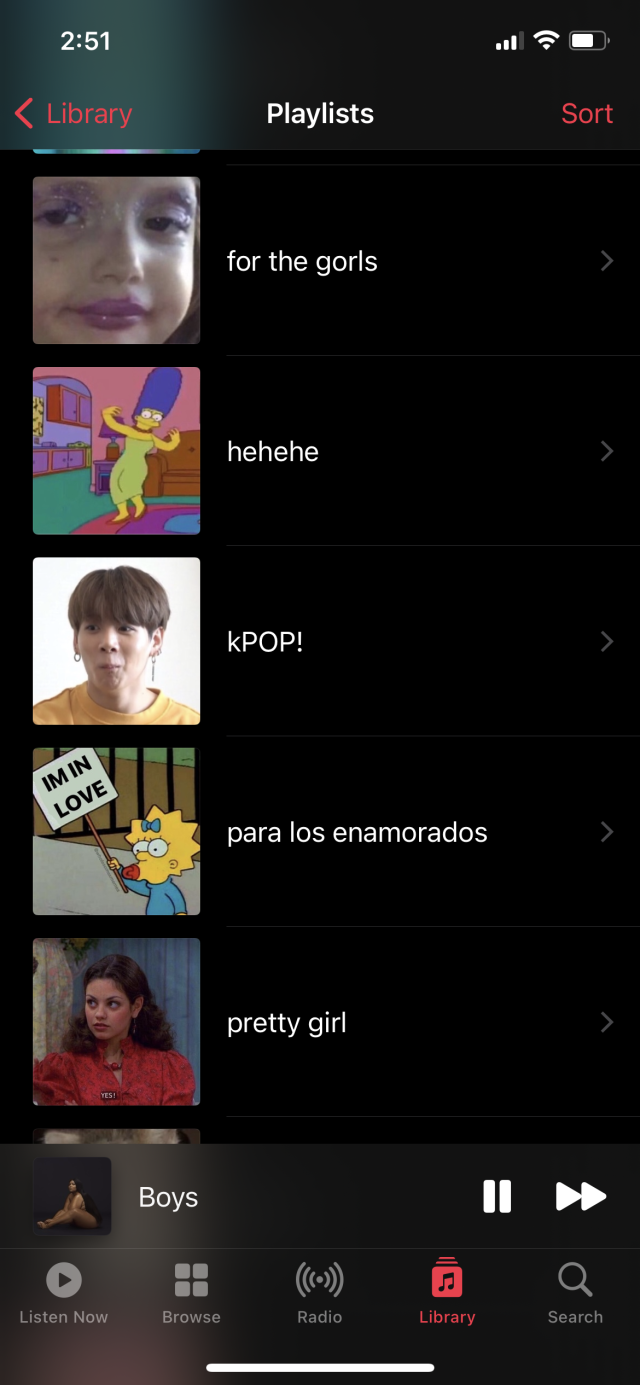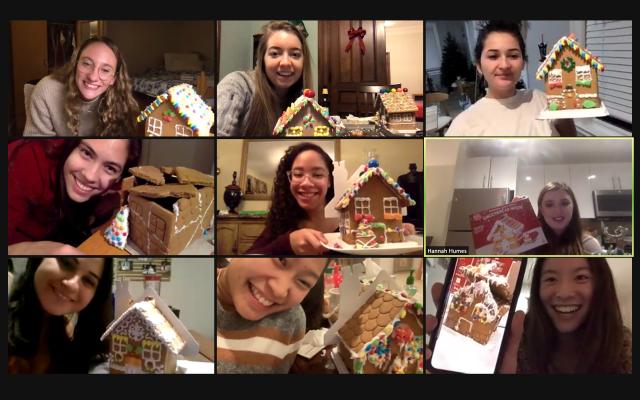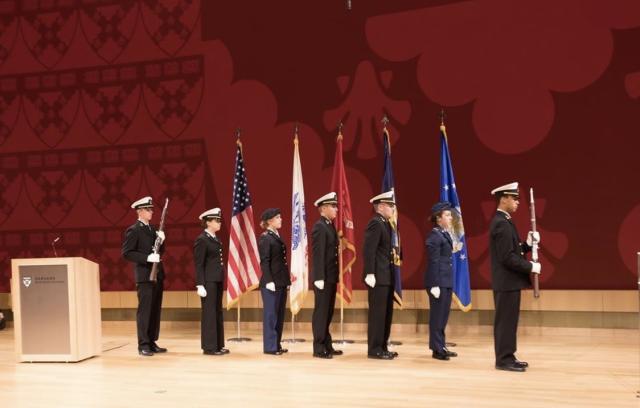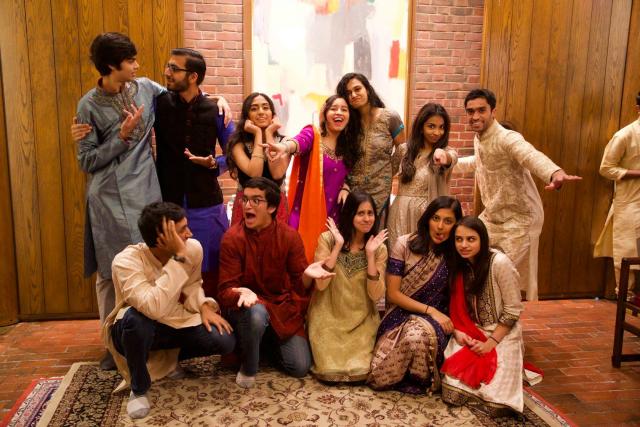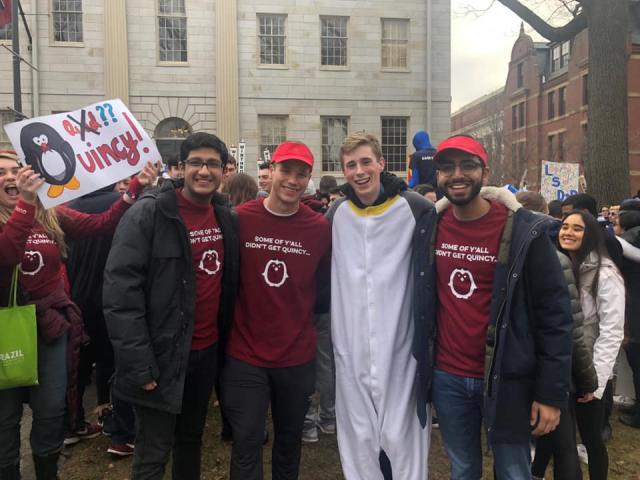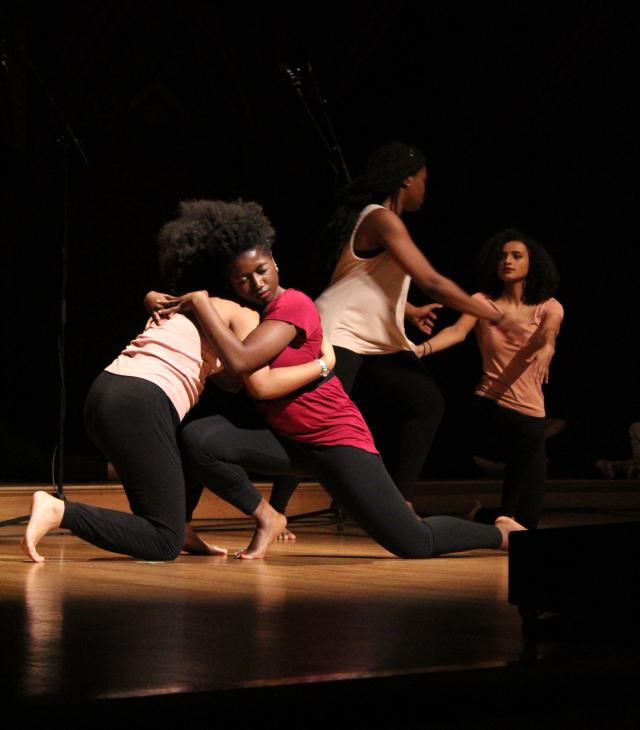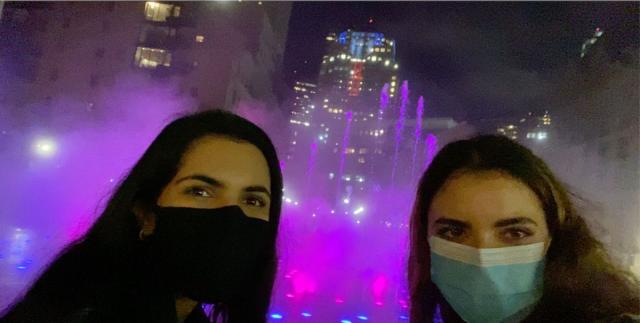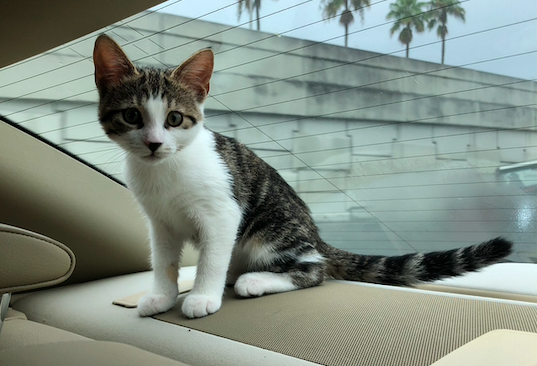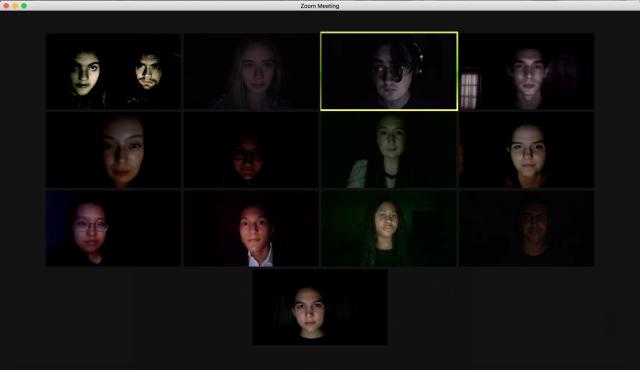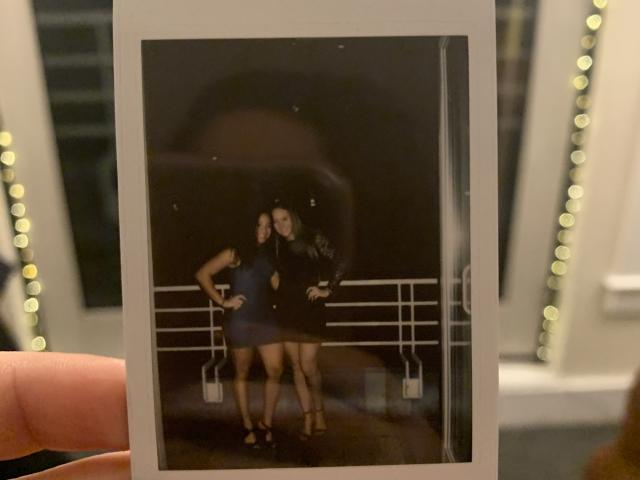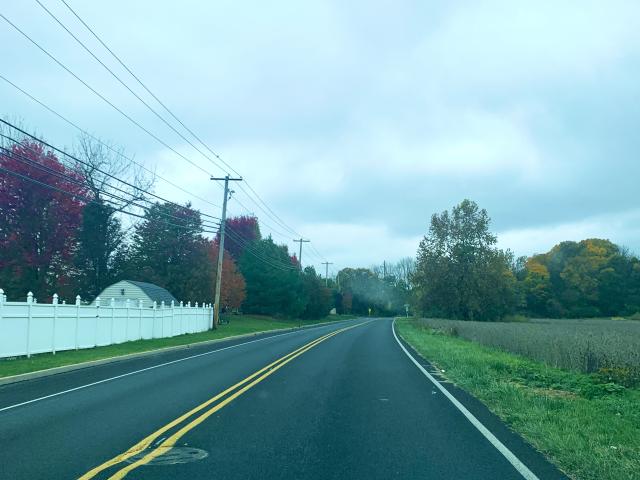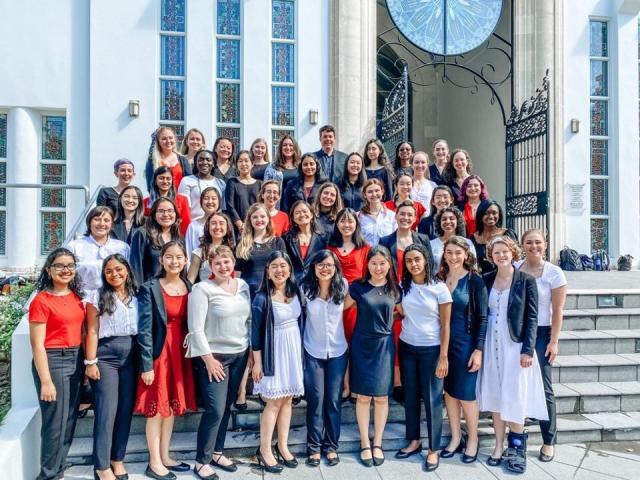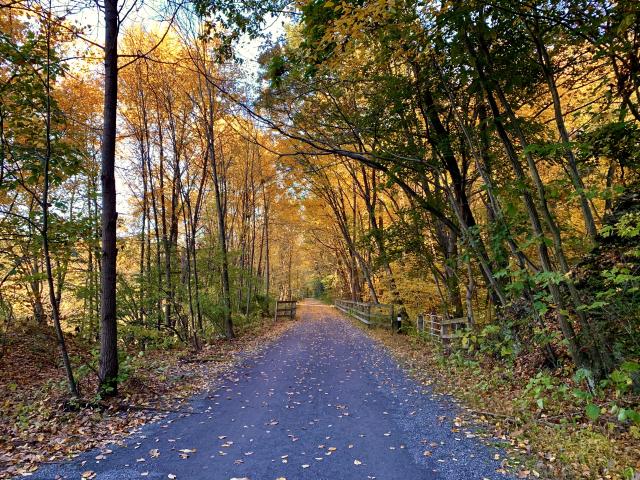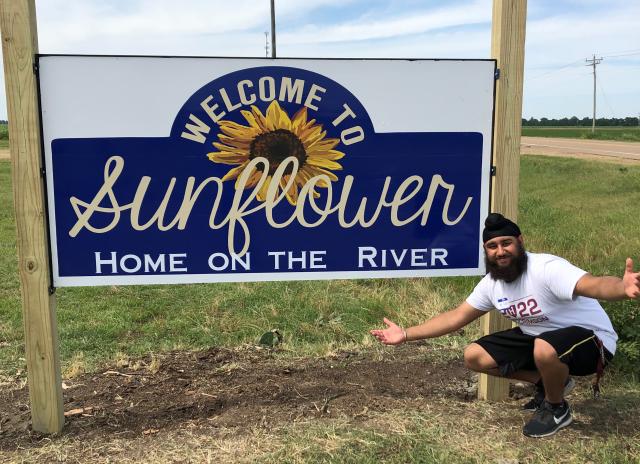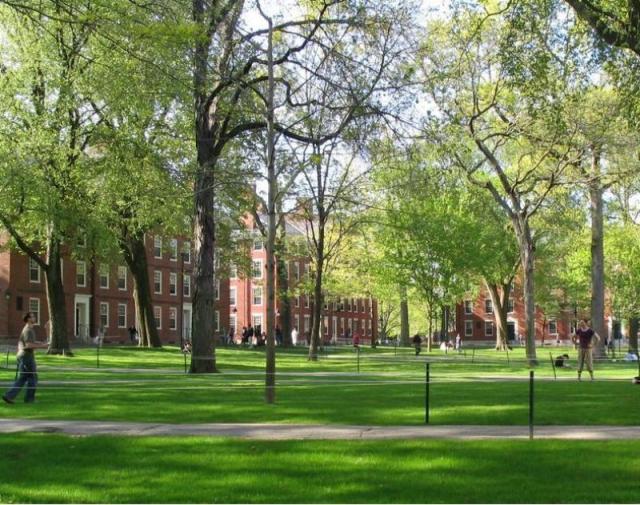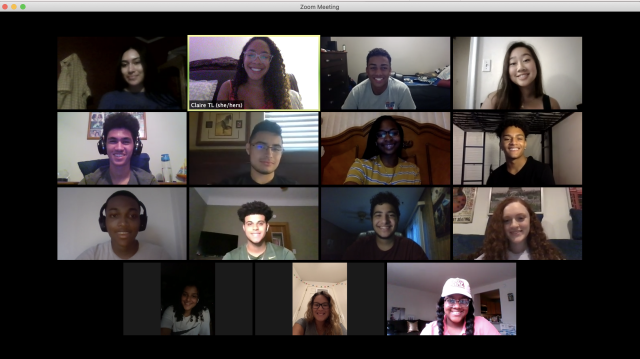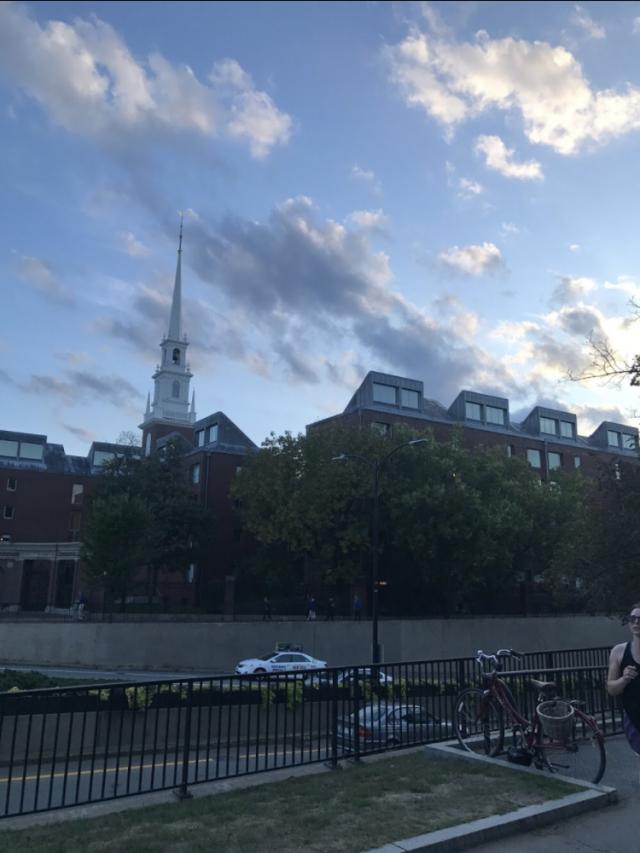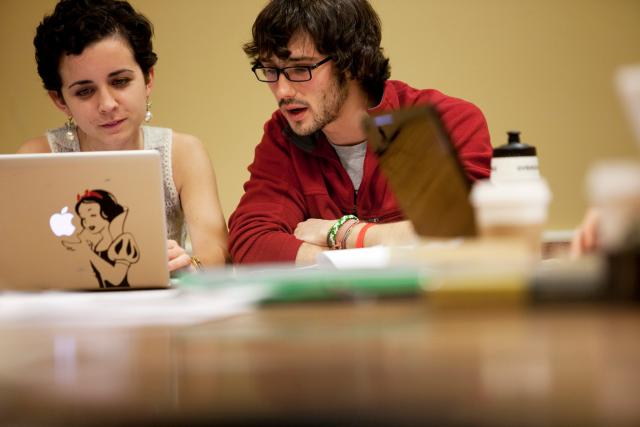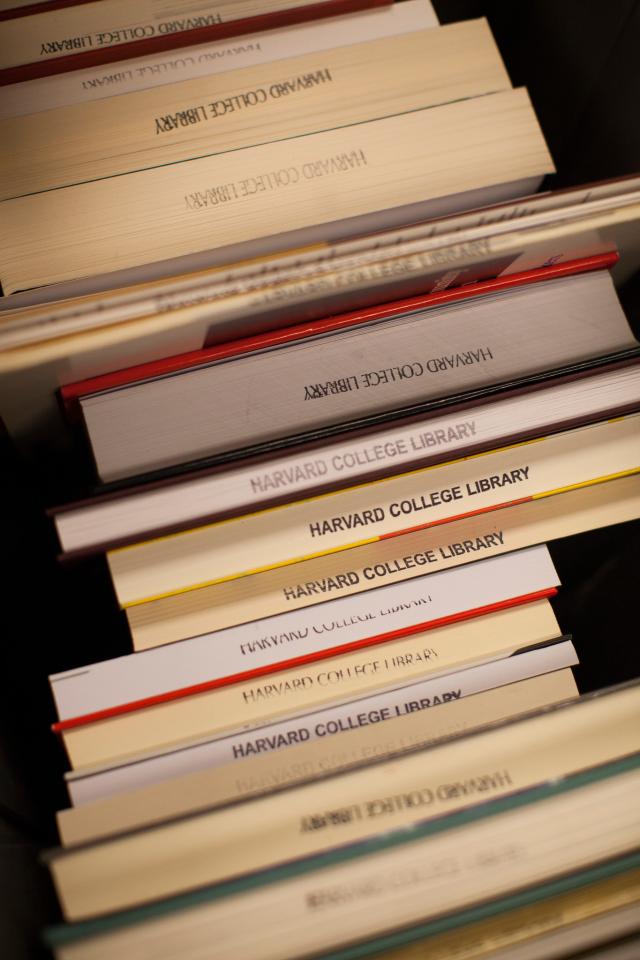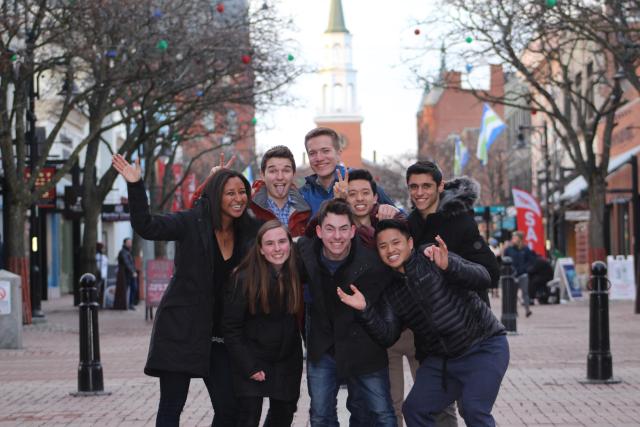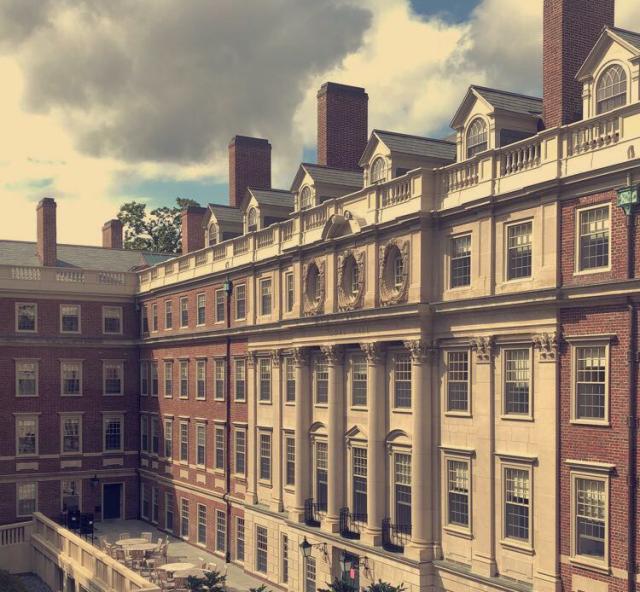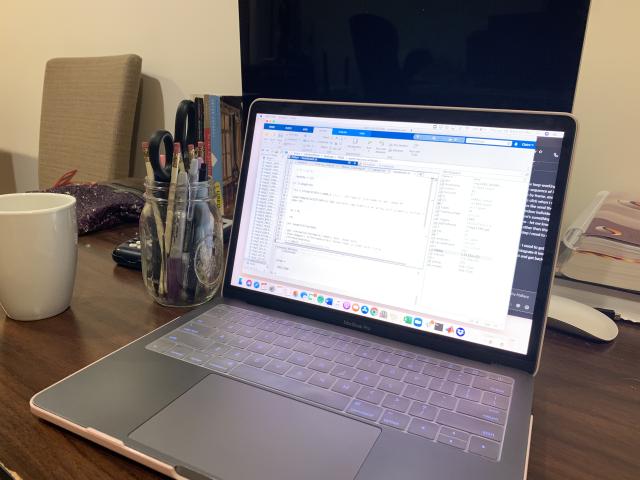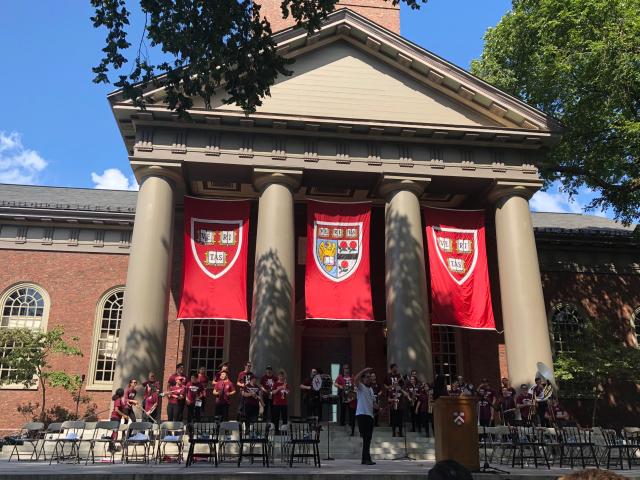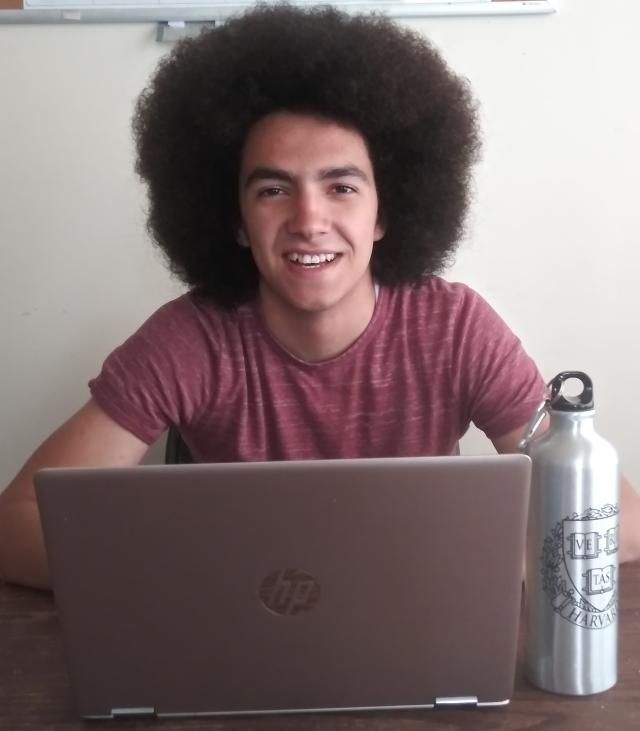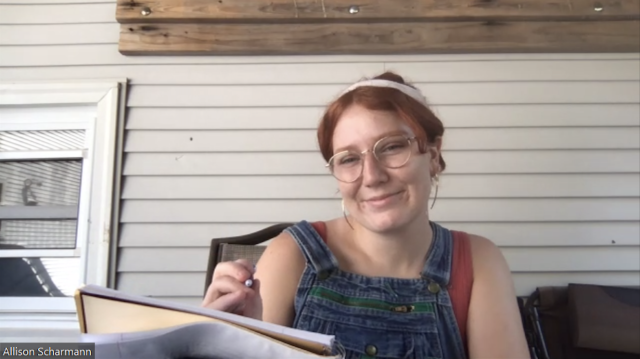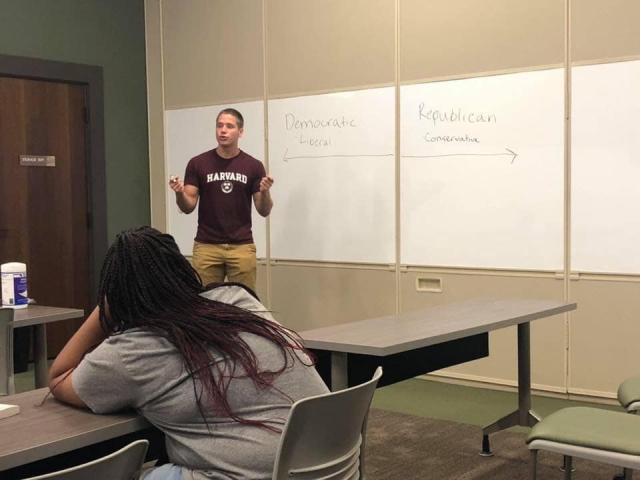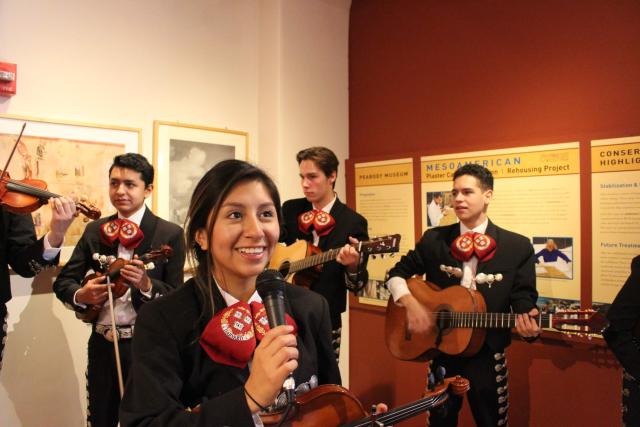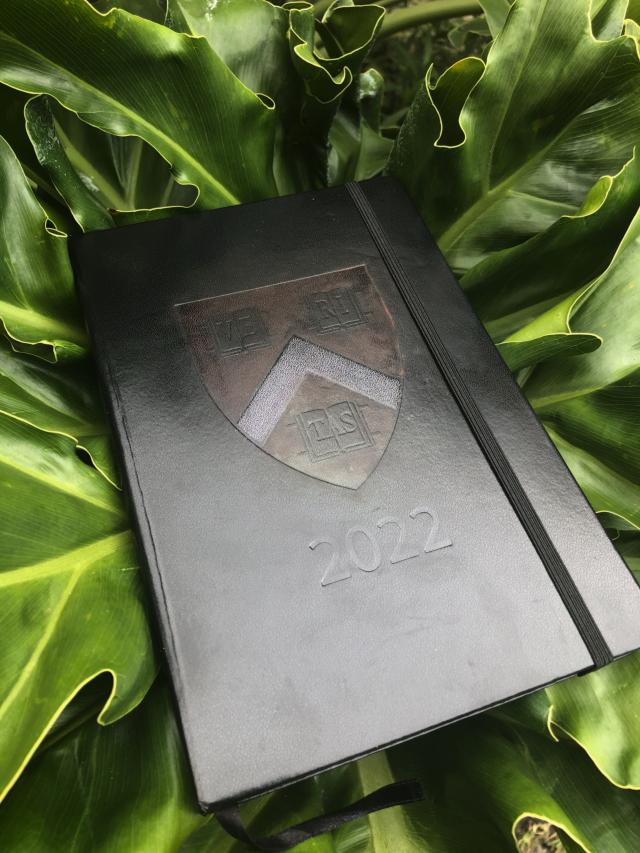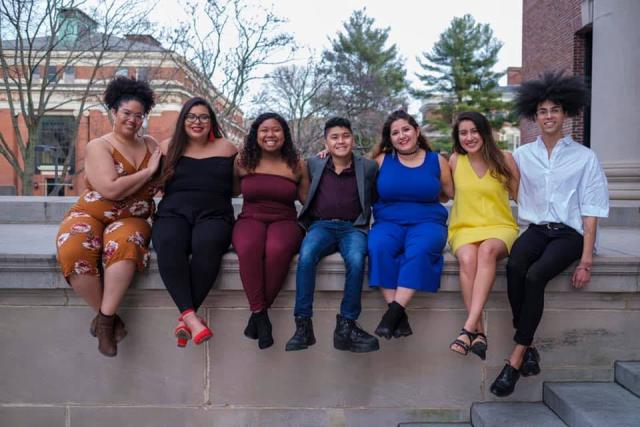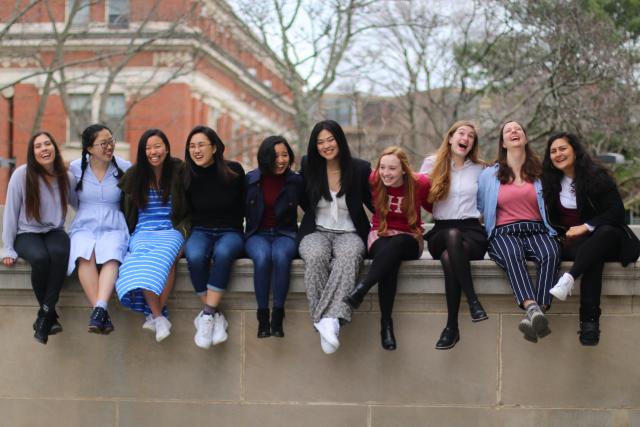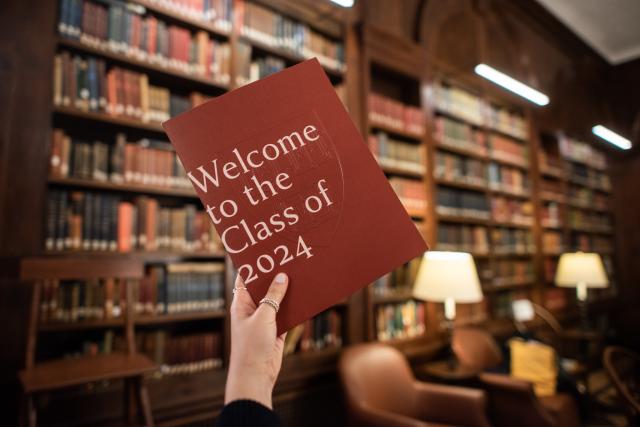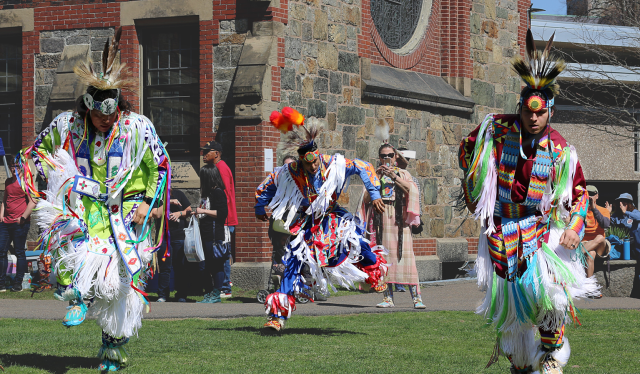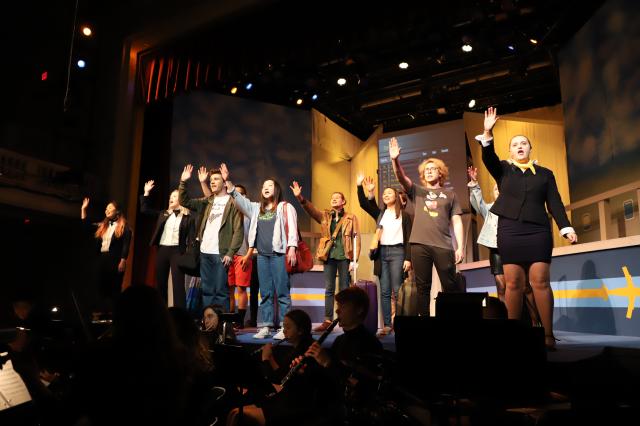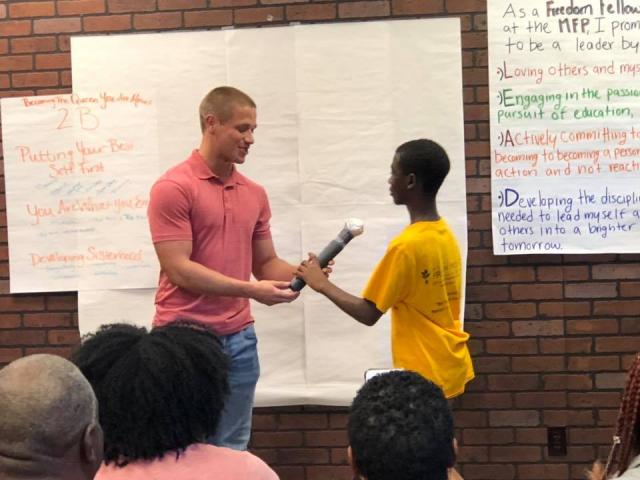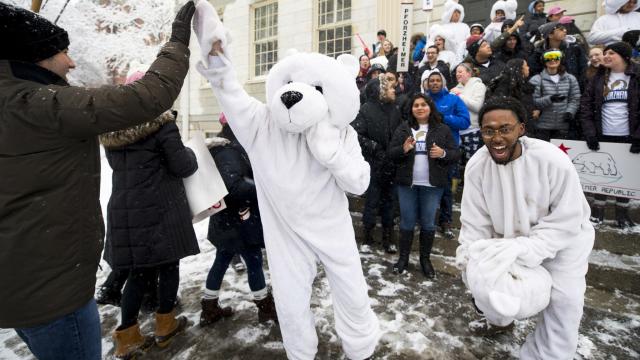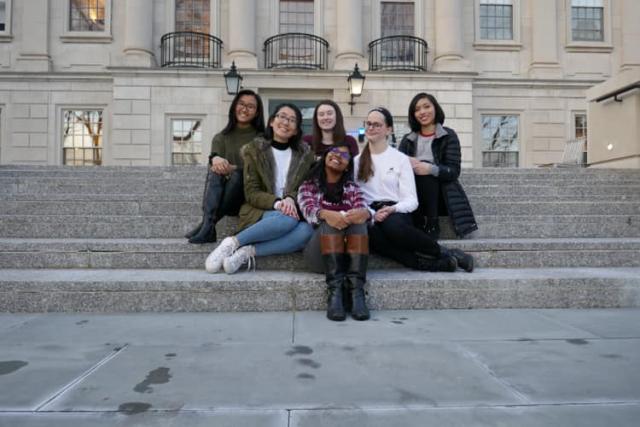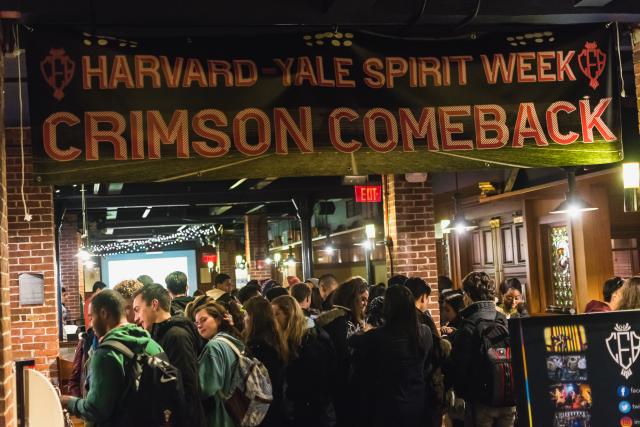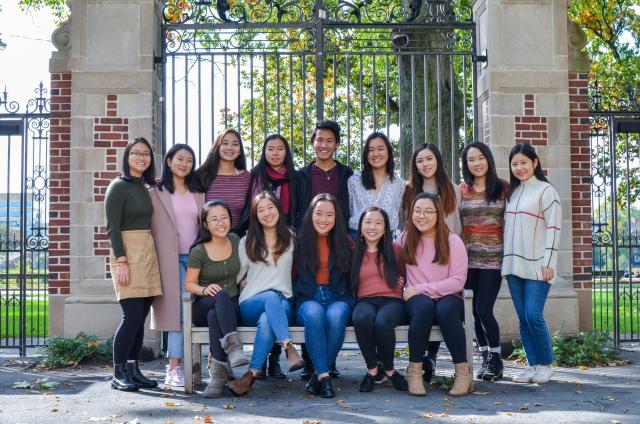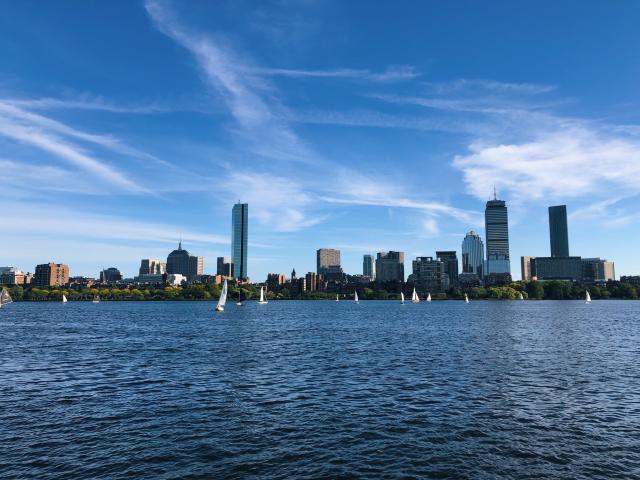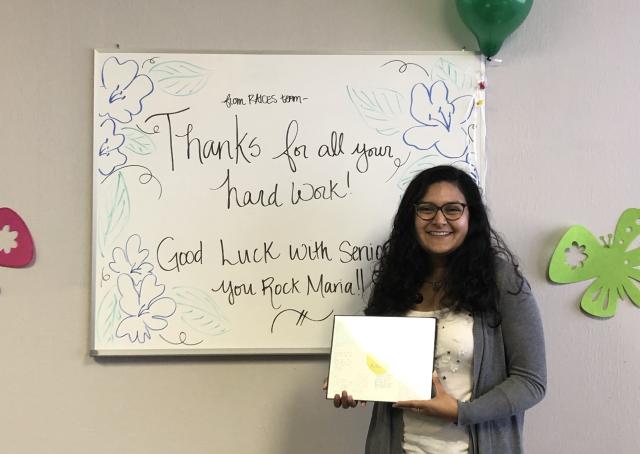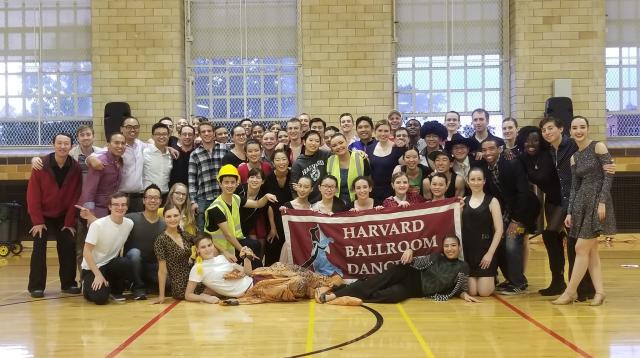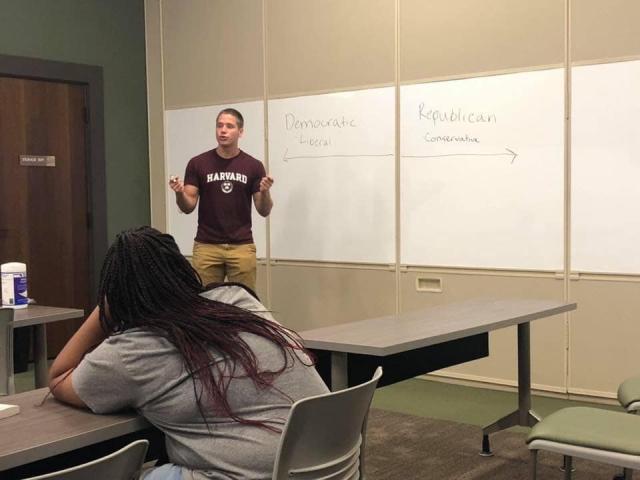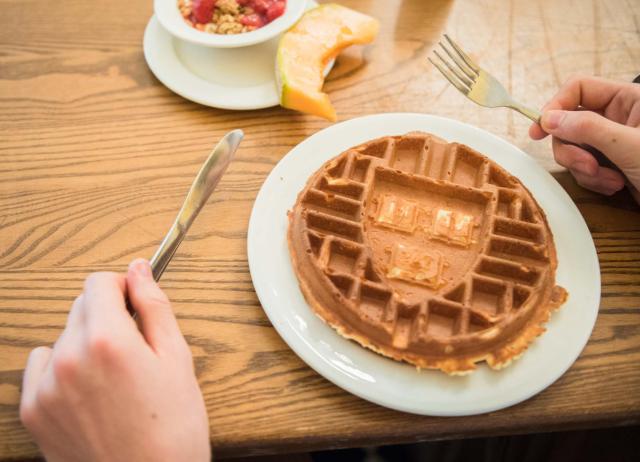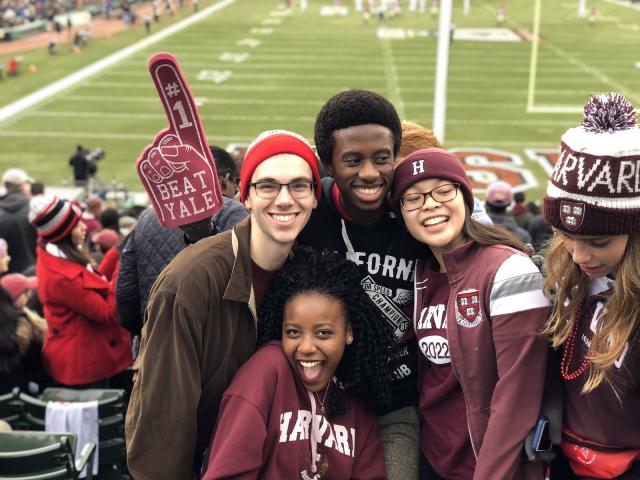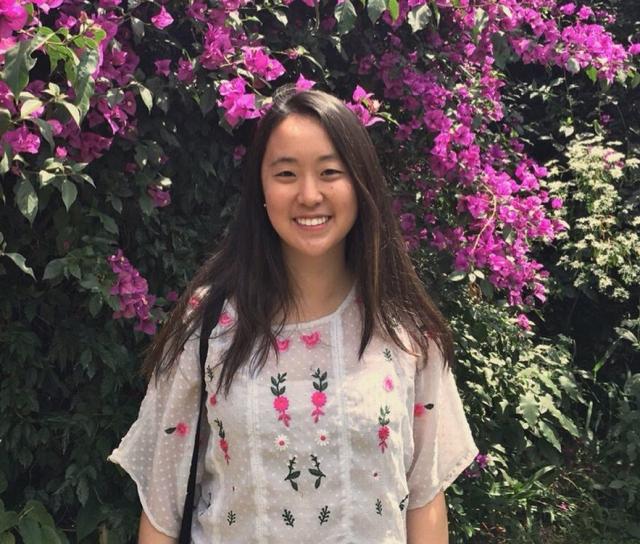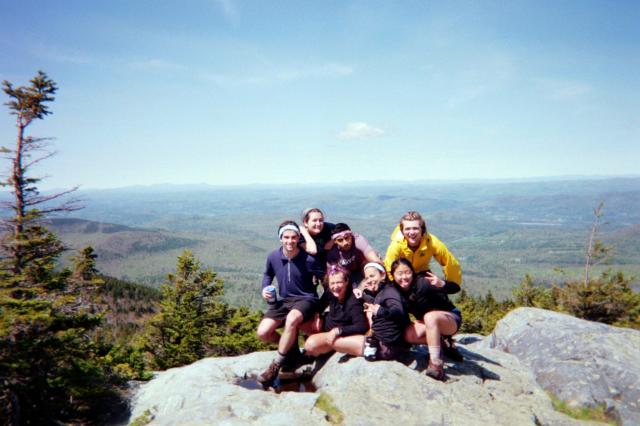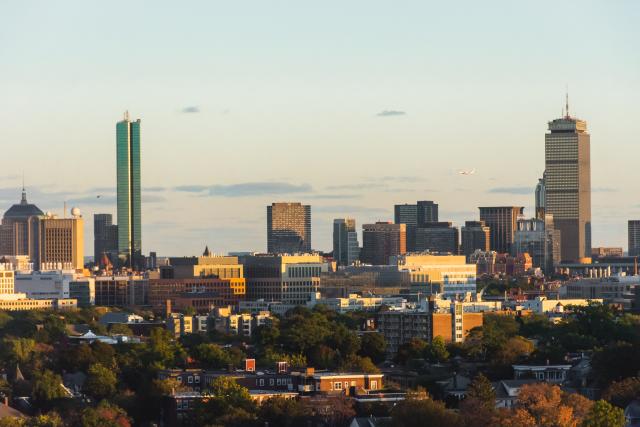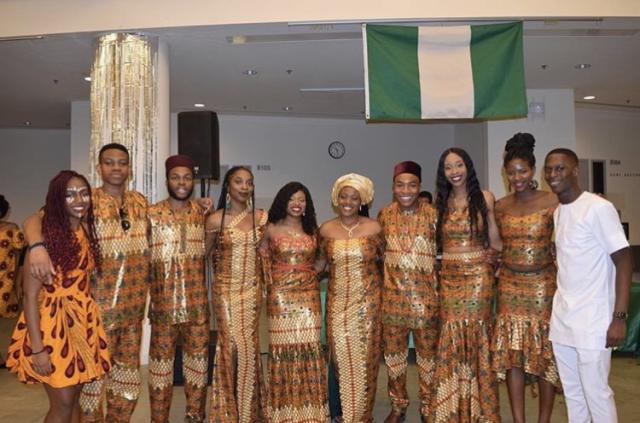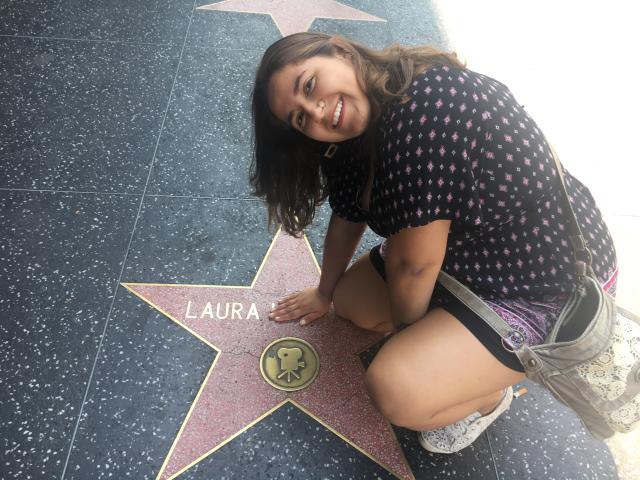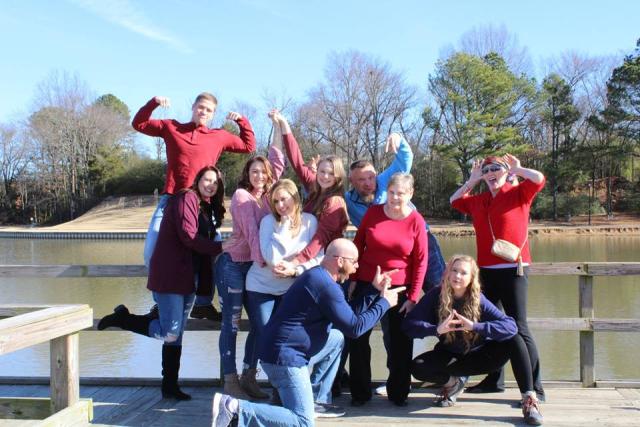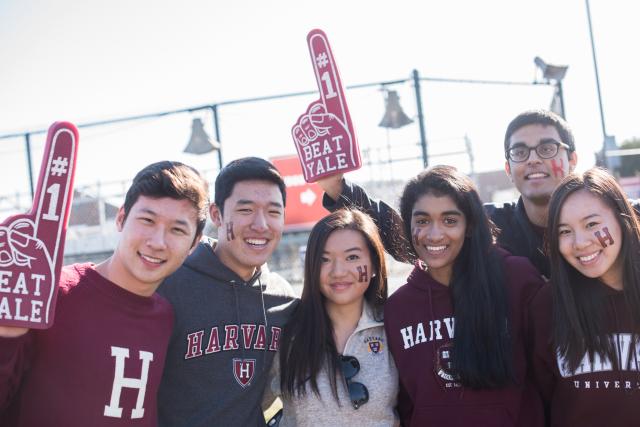The sun shines on the grass of the Quad Lawn as a few students and I carry bulging bags to tables located at the edge of the greenery.
In a matter of minutes, cups, plates, utensils, and drinks are set up and ready for a picnic. After making a few calls, other students begin to arrive at the Lawn, bringing with them speakers, sports equipment, and blankets. The excited chatter increases in intensity as more people show up and greet each other, but it all comes to an abrupt stop when the main attraction arrives: the food. Smells from local Black diasporic restaurants fill the air: collard greens, cornbread, jollof rice, and, of course, Popeye’s chicken. People hungrily line up to get a plate. As the event progresses, all I can hear is the sound of dancehall, afrobeats, and the Hip Hop Top 50 mixed with casual conversation and full-tooth smiles. The event reaches its peak when the Cupid Shuffle plays; everyone simultaneously lines up and does what they have to do. As evening approaches, the excitement wanes and people retreat to the shuttle stop to return to their dorms; however, a strong, deep feeling remains in the air. It’s a feeling that can only be attributed to spending an afternoon with the Black Harvard community.
The Black Community Challenge, the event described above, is one of the many events put on the Black student organizations at Harvard. As I was going through the application process, one of my biggest concerns was finding a place to fit in as I continued my education. My background was complex: I grew up in a Nigerian household and my parents owned a store, yet I attended a predominantly white high school with classmates whose parents were doctors, lawyers, and corporate bosses. The population of Black students at my high school was decently sized, but there was a severe lack of Black faculty. On top of all of this, as one of three Nigerians in my grade, I didn’t feel confident showcasing my culture during the school day. Considering all of these factors, I didn’t think I would be “Black enough” for any of the spaces present in higher education meant for people that looked like me.
However, after arriving at Harvard for Visitas, the admitted students weekend, all my worries left me. The Black affinity groups organized a community barbeque - much like the one I described above - to welcome the admits from the Class of 2022. Every current student I met was incredibly friendly and eager to answer my questions about Black life at Harvard. Additionally, my fellow admits were equally as excited to talk about their experiences. I was elated; not only was I seeing and interacting with people that looked like me, but the vibrant and positive atmosphere also ensured I would fit right at home at the College. This sealed the deal and made me eager to commit to Harvard.
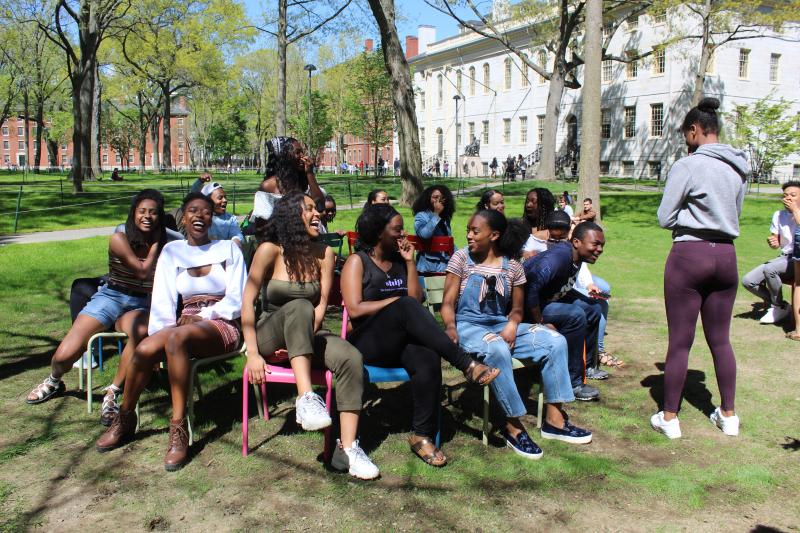
'Round and 'Round
Towards the end of the picnic, we had a fun but chaotic game of musical chairs. Falako Photography
Black Harvard has a lot of moving parts, so I’m going to break it down for you all. There are over 15 Black affinity organizations at Harvard College. Some groups focus on the different cultural experiences of the diaspora; this includes the Nigerian Students Association (NSA), the Generational African-American Student Association (GAASA), the Harvard Caribbean Club (HCC), the Harvard African Students Association (HASA), the Ethiopian and Eritrean Students Association (EESA), and the Dominican Student Association (DSA). There are also academic or career-oriented groups such as the Black Pre-Law Association (BPLA), the Black Pre-medical Society (HBPS), and the Society of Black Scientists and Engineers (HSBSE). Finally, there are umbrella organizations that serve broader sects of the community in a variety of ways such as the Black Students Association (BSA), the Association of Black Harvard Women (ABHW), the Black Men’s Forum (BMF), Kuumba Singers of Harvard College, and Black Community and Student Theatre (BlackCAST).
I’ve found a home in the Black Harvard community and I couldn’t imagine being anywhere else.
All of these organizations mainly work on their own, but at times they collaborate with each other to create more niche events that will bring the parts of the community together. For example, every year during the first week of October the Nigerian Students Association puts on an Independence Day Gala to celebrate the liberation of Nigeria, but they collaborate with the Harvard Caribbean Club to host dance workshops. The Black Students Association throws many large celebration-based events like Black Convocation and Black Legacy Ball, but recently the organization collaborated with the Association of Black Harvard Women and SHADE, which is the LGBTQ+ affinity group for students of color, to talk about Black women and queer, trans, and gender non-conforming people in the Black Lives Matter Movement. Finally, whenever there’s a gathering that attracts all community members, all these student groups band together under the banner of Black Community Leaders, or BCL, to plan them. Some examples these events are the community barbeque and the annual Harvard-Yale Black tailgate. You can check out the social media pages of these organizations to find out more about the work they do on campus!
As I conclude this piece, I must answer the question that I posed to myself all two years ago: am I "Black enough" for the Black Harvard community? Yes and no. Yes, because despite the complexity of my upbringing, I've managed to create a space for myself within the community. No, because there's no such thing as being "Black enough" when it comes to our community; all facets of Blackness are welcomed, and more importantly, celebrated. Even though having several organizations can get hectic, it gives Black students the opportunity to enter the community at any level and capacity - ranging from going to events as a member to running for a board position. It also allows students to explore other facets of Blackness that are unfamiliar to them, connecting the community on a deeper and more powerful level. I’m not going to act like it’s perfect; we have our disagreements and struggle to achieve inclusivity and accountability both at an interpersonal and organizational level. But at the end of the day, we are a family. I like to assume that, for the most part, the community is committed to uplifting the space we create for ourselves, which is extremely important due to the fact that we lack a physical institutional space and people that looked like us weren’t even allowed to attend not too long ago. Especially with everything going on with systemic racial injustice right now, having a community at Harvard has not only kept me grounded while I processed my whirlwind of emotions, but it also solidified my belief that change is possible and is on the horizon. I’ve found a home in the Black Harvard community and I couldn’t imagine being anywhere else.

